Ph.D. Programs
The Department of Linguistics offers four concentrations leading to the Doctor of Philosophy (Ph.D.) degree in Linguistics (see list below). No matter the concentration, our faculty work closely with students, guiding their research and supporting their passions.
- Applied Linguistics
- Computational Linguistics
- Sociolinguistics
- Theoretical Linguistics
Applicants to the Ph.D. program are encouraged to identify prospective research advisors, at least one of whom should be in the concentration to which they apply.
After entering the program, Ph.D. students may elect to add a minor in a second one of these concentrations [new policy effective Spring 2023].
An interdisciplinary (second) concentration in Cognitive Science is also available to Ph.D. students.

Master’s in Passing
If, in their course of the Ph.D. program, a doctoral student meets all of the requirements of a M.S. degree in Linguistics, he or she may apply to receive a “Master’s in Passing.” Please consult section IV.D.3 of the Graduate School Bulletin for full details about the “in passing” or “terminal” Master’s degree.
- Skip to Content
- Catalog Home
- Institution Home
- Graduate Catalog /
- School of Arts & Sciences /
Linguistics, PhD
The Ph.D. program in Linguistics at Penn embraces a wide range of theoretical specializations and methodologies. What unites them is a commitment to careful and explicit formal analysis of the human capacity for learning and using language.
The core of our program is the formal generative tradition, but we encourage the cross-fertilization that results from the confrontation of empirical and theoretical perspectives on language structure. By our close collaboration with other programs (such as computer science and psychology) we promote an awareness of the broad view of language that interdisciplinary study induces. In addition to broad training, students are offered and expected to master the methods and results of their chosen areas of concentration in linguistics as a prerequisite to fruitful engagement in dialogue with others, both within and outside the program.
For more information: https://www.ling.upenn.edu/graduate/
View the University’s Academic Rules for PhD Programs .
Required Courses
The total course units required for graduation is 20. A minimum of 12 course units must be taken at the University of Pennsylvania.
| Code | Title | Course Units |
|---|---|---|
| Foundational Courses | ||
| Phonology I | 1 | |
| Phonology II | 1 | |
| Syntax I | 1 | |
| Syntax II | 1 | |
| Select four of the following: | 4 | |
| Morphology I | ||
| Morphology II | ||
| Phonetics I: Experimental | ||
| Phonetics II: Data Science | ||
| Semantics I | ||
| Semantics II | ||
| Linguistic Field Methods | ||
| Historical and Comparative Linguistics | ||
| Language Variation & Change | ||
| Developmental Psycholinguistics | ||
The degree and major requirements displayed are intended as a guide for students entering in the Fall of 2024 and later. Students should consult with their academic program regarding final certifications and requirements for graduation.
Print Options
Print this page.
The PDF will include all information unique to this page.
Quick links
- Directories
- Make a Gift
Ph.D. in Linguistics
| On this page: | See also: |
|---|---|
Ph.D. in Linguistics (General Linguistics Track)
Note that the required courses and language requirement differ between the curriculum instituted Sept. 2018 and the prior curriculum. All other requirements are the same.
1A. Required courses (30 credits): Curriculum instituted Sept. 2018
One graduate-level course in each of the following sub-disciplines:
- Syntax: LING 507 “Syntactic Theory I”
- Sociolinguistics: LING 532 “Sociolinguistics I”
- Language Processing and Development: LING 541 or 542 (“Language Processing and development I or II”)
- Phonology LING 552 (“Phonology II”)
- Phonetics LING 550 (“Introduction to Linguistic Phonetics”)
- Semantics LING 479 or 579 ("Semantic Theory I or II")
1B. Required courses (35 credits): Prior to Sept. 2018
- LING 507 ("Syntax I")
- LING 508 ("Syntax II")
- LING 532 ("Sociolinguistics I")
- LING 551 ("Phonology I")
- LING 552 ("Phonology II")
- LING 550 or 553 ("Phonetics I or II")
- LING 578 or 579 ("Semantics I or II")
If a student has taken an equivalent course elsewhere, the requirement to take this course can be waived. The waiver needs to approved by the faculty in the relevant area and the GPC. Such waivers do not change the total number of credits required by the Graduate School for graduation.
2. Credits of study:
Additional courses for a minimum of 90 credits (27 of which are LING 800) to be determined by specialization and consultation with the advisory committee.
3A. Language knowledge requirement: Curriculum instituted Sept. 2018
General Linguistics Track students must satisfy one natural language requirement for the PhD. The choice of the language needs to be approved by the student’s advisory committee. The language requirement may be satisfied in one of the following three ways:
- One year of study at the university or community college level. Students who are language instructors in other UW departments can use their language teaching experience to satisfy one language requirement.
- A major research project that involves significant primary data collection that includes substantial structural analysis and results in a major paper such as a generals paper.
3B. Language knowledge requirement: Prior to Sept. 2018
General Linguistics Track students must satisfy two natural language requirements for the PhD. Those may be satisfied in the following ways:
- Translation exam to demonstrate the ability to read linguistic literature in a foreign language; only one of the two language requirements for the PhD can be satisfied through the translation exam.
4. Colloquium conference talks:
Two papers delivered at a colloquium or conference.
5. Constitution of PhD committee:
By the end of the second year of study.
6. Generals Papers:
Two generals papers in different areas (normally 10cr LING 600). What counts as a different area is determined and needs to be approved by the student's committee.
7. General Examination:
An oral examination, in which the candidate is questioned on the two papers. The oral examination may not be scheduled until the committee has read the two papers and approved them as passing.
8. Dissertation Prospectus:
Within 6 months of the oral examination, the student will present a formal dissertation proposal to the subset of PhD committee members who constitute the reading committee, along with a proposed calendar for completion of the dissertation.
9. Final Exam:
A Final Exam on the dissertation attended by the candidate’s Supervisory Committee and open to others interested.
10. Dissertation:
A dissertation suitable for publication.
11. ABD (all but dissertation) requirement:
All degree requirements except for the dissertation and the two colloquia must be completed before the General Exam.
Ph.D. in Linguistics (Computational Linguistics Track)
The requirements for students on the computational linguistics track will meet all the same requirements as students in other specializations except :
1. Required courses:
- 2 syntax courses from among: LING 566, 507, 508
- 2 phonetics/phonology courses from among: LING 550, 551, 552, 553
- 1 semantics course from among: 578, 579
- 1 sociolinguistics course from among: LING 532, 533
- 3 Computational Linguistics courses from among: 567, 570, 571, 572, 573
3. Language knowledge requirement:
Students in Computational Linguistics must fulfill only one language requirement, but may not use a translation exam to do so. The language must be typologically substantially distinct from the student's native language; for example, a native English-speaking student would need to select a non-Indo-European language. Please refer to Language Requirements for details.
6. Generals papers:
Same as for the General Linguistics program except a Master’s thesis completed as part of the CLMS program may count as one of the two generals papers.
How to make the CLMS to PhD transition
M.A. in Linguistics
The M.A. is not required as a prerequisite to Ph.D. study. Students enrolled in the PhD program may get an MA degree when they pass the general exam and file a request for an MA degree with the graduate school. Students who have taken all the required courses for the PhD CompLing track may analogously file a request for an MS degree with the Graduate School, under either model A or B below. Students who would like to get an MS degree have to get their advisor's approval before filing an official request with the Graduate School.
A. Non-thesis model:
The Generals papers and Exam constitute the capstone project necessary for a master’s degree (or the student may complete the thesis model below).
B. Thesis model:
- Required courses: Same as the required courses in PhD General Linguistics Track.
- Language requirement: Same as the language requirement in PhD General Linguistics Track.
- Thesis: A thesis, written under the supervision of a Linguistics faculty member, and accepted by a second faculty reader. Normally the work is completed in 10 credits of LING 700.
Remarks on Graduate School Requirements
Students are advised to become familiar with Graduate School requirements, as well as those described on this website. If there are any questions, the student should contact the Graduate School, the Graduate Program Coordinator or the chair of the Supervisory Committee. Once admitted to the program, students should make it a regular practice to see the Graduate Program Coordinator about their progress at least once a year. All graduate students must be either registered or officially on leave. Failure to register or go on leave is interpreted as resignation from the Graduate School. Information on the Graduate School is available at http://www.grad.washington.edu . If you have any further questions or comments please contact us at [email protected]
- Newsletter
Linguistics
Share this page.
You will experience a unique range and depth of Harvard’s offerings in related fields, especially ancient and modern languages and the growing Mind Brain Behavior Initiative.
You will have the flexibility to customize your program to prepare you for post-graduate success in an academic or non-academic role. You can access a wide range of Harvard resources including the Widener Library, which contains a matchless linguistic and philological collection supplemented by a special non-circulating collection accessible only to linguistics students and faculty.
Examples of theses and dissertations by graduates include “An Experimental Pragmatic Investigation of Depictive Co-Speech Gestures,” “Interpreting Questions with Non-Exhaustive Answers,” “Nominal Arguments and Language Variation,” and “Phrasing is Key: The Syntax and Prosody of Focus in Georgian.”
Graduates of the program have secured academic positions at Rutgers University; University of California, Berkeley; University of Vienna; and the University of Hawaii. Others hold jobs with companies such as Amazon, Google, and Grammarly.
Additional information on the graduate program is available from the Department of Linguistics , and requirements for the degree are detailed in Policies .
Areas of Study
Historical Linguistics | Linguistic Theory | Unspecified
Admissions Requirements
Please review the admissions requirements and other information before applying. You can find degree program-specific admissions requirements below and access additional guidance on applying from the Department of Linguistics .
Academic Background
Applicants typically have a previous background in linguistics, a mature interest in the field, and a strong language background.
Writing Sample
A writing sample is required as part of the application and should be no more than 100 pages.
Standardized Tests
GRE General: Optional
Theses and Dissertations
Theses & Dissertations for Linguistics
See list of Linguistics faculty
APPLICATION DEADLINE
Questions about the program.

- Diversity & Inclusion
- Land Acknowledgment
- Administration
- Jonathan Barnes
- Charles B. Chang
- Elizabeth Coppock
- Daniel Erker
- Paul Hagstrom
- Najoung Kim
- Kate Lindsey
- Catherine O’Connor
- Affiliated Faculty
- Carol Neidle
- Teaching Fellows
- Graduate Students
- Affiliated Researchers
- Doctoral Alumni
- Master’s Alumni
- Certificate Alumni
- Undergraduate Alumni
- Spring 2025
- Spring 2024
- Spring 2023
- Major in Linguistics
- Minor in Linguistics
- Linguistics & Computer Science
- Linguistics & Philosophy
- Linguistics & Speech, Language, and Hearing Sciences
- Linguistics & African Languages
- French & Linguistics
- Italian & Linguistics
- Japanese & Linguistics
- Spanish & Linguistics
- BA/MA in Linguistics
- Honors Programs
- BU Hub Requirements
- BU Linguistics Association
- Undergraduate Resources
PhD in Linguistics
- MA in Linguistics
- Graduate Certificate in Linguistics
- Graduate Research Forum
- Colloquium Committee
- Graduate Resources
- ASL Linguistic Research Project
- Linguistic Semantics Lab
- Phonology Lab
- Sociolinguistics Lab
Aims of the PhD
Human language is a multifaceted phenomenon. It is simultaneously a property of individual minds and of whole speech communities, and thus both internal and external to us. It both shapes and is shaped by our societies over time. It is a combination of sound (or sign), which has physical properties that can be measured, and meaning, which does not. Accordingly, becoming a linguistic researcher involves mastering a variety of methods, both quantitative and qualitative. The PhD in Linguistics at BU aims to produce scholars who are versatile enough to be experts in both of these aspects of linguistic inquiry, yet skilled enough to do cutting-edge research in a particular subfield of the discipline. We offer a solid grounding in a range of research methods, including field methods, quantitative methods, and computational methods.
Learning Outcomes
Students graduating with a PhD in Linguistics will demonstrate:
- broad knowledge of the discipline
- deeper knowledge in a specialized area or subfield
- ability to carry out a significant piece of independent research (which implies knowledge of and ability to use research methodologies in order to complete the research)
Prerequisites
The GRE (Graduate Record Examination) is not required to apply.
Entering students are expected to have completed introductory classes in:
- phonetics/phonology (e.g., GRS LX 601)
- syntax (e.g., GRS LX 621)
- semantics/pragmatics (e.g., GRS LX 631)
Students who do not have sufficient background in linguistics must complete additional coursework to fulfill the above prerequisites prior to entry or during the first year. Note: if completed at BU, GRS LX 601, 621, and 631 will not count toward the PhD course requirements.
Admissions & Funding
The deadline for application to enter the program in Fall 2023 is January 6, 2023. Information about the graduate admissions process ( including the application process and requirements ) is available at the Graduate School of Arts & Sciences (GRS) website:
We anticipate being able to admit about five students per year. All admitted students will receive full coverage of tuition costs plus a fellowship for five years. For further information about funding, consult the GRS website above.
Requirements
Course requirements.
The PhD requires successful completion of 64 credits at the graduate level, including three core courses:
- GRS LX 703 Phonological Analysis
- GRS LX 722 Intermediate Syntax
- GRS LX 732 Intermediate Semantics
Six additional courses from the four areas below, with two courses each in two of the areas, and one course each in the remaining two areas:
- advanced phonetics, phonology, or morphology (e.g., GRS LX 706)
- advanced syntax, semantics, or pragmatics (e.g., GRS LX 723, 736)
- linguistic research methodology
- language acquisition or socio-historical linguistics
A 4-credit graduate proseminar sequence (GRS LX 801 & 802) is typically taken in the second year.
Finally, six additional courses (including up to 8 credits of directed study) are taken in Linguistics or related fields that comprise a specialization , which will generally be in the area of the dissertation. These courses will be decided upon by the student in conjunction with their advisor, whose approval is required.
Language Requirement
The PhD requires demonstration of graduate-level reading proficiency in two foreign languages (one of which may be English, for non-native speakers) by the end of the third year of enrollment.
These proficiencies can be demonstrated through any of:
- a language examination
- successful completion of a non-credit graduate-level foreign language reading course offered at BU
- the equivalent of two years of undergraduate study of the language at BU (or successful completion of any higher-level language course taught in the language)
Graduate-level foreign language reading courses offered at BU include:
- GRS LF 621 Reading French for Graduate Students
- GRS LG 621 Reading German for Graduate Students
- GRS LI 621 Reading Italian for Graduate Students
- GRS LS 621 Reading Spanish for Graduate Students
Qualifying Examinations
To advance to candidacy, students must satisfactorily complete and defend two substantial research papers in different areas of the field (the first by the end of the fourth semester, the second by the end of the sixth semester of enrollment).
Each Qualifying Paper (QP) will be planned and carried out under the supervision of a Linguistics faculty member with expertise appropriate to the relevant project and, upon completion, will be defended orally and approved by an examining committee, composed of the first and second reader as well as a third faculty member determined by the Director of Graduate Studies (DGS) in consultation with the student.
A brief proposal for each QP must be submitted, with signed approval of a first and second reader (who have been approved by the DGS and who have agreed to advise the student on the proposed project), by October 15 of the academic year in which the project is to be completed. For the second QP, a topic approval form, in which the student explains how the second QP differs from their first QP, must also be submitted, in advance of the proposal approval form.
Dissertation and Final Oral Examination
PhD candidates will demonstrate their abilities for independent study in a dissertation representing original research or creative scholarship.
A prospectus for the dissertation must be completed and approved by the readers, the DGS, and the Department Chair.
Candidates must undergo a final oral examination in which they defend their dissertation as a valuable contribution to knowledge in their field and demonstrate a mastery of their field of specialization in relation to their dissertation.
All portions of the dissertation and final oral examination must be completed as outlined in the GRS general requirements for the PhD degree:
Director of Graduate Studies
Co-Directors of Graduate Admissions
Linguistics and Applied Linguistics, PHD
On this page:.
At a Glance: program details
- Location: Tempe campus
- Second Language Requirement: No
Program Description
Degree Awarded: PHD Linguistics and Applied Linguistics
The PhD program in linguistics and applied linguistics focuses on the scientific study of human language and the application of that study to the human condition.
Students in this program select a research specialization in formal linguistics, applied linguistics or some combination within these fields of study.
The curriculum provides professional training in linguistics and applied linguistics with focused research in several linguistic subfields, including syntax, semantics, phonetics, phonology, pragmatics, discourse analysis, sociolinguistics, language contact and change, language planning, Indigenous American linguistics, language documentation and revitalization, second language acquisition, second language teaching and learning, teaching English to speakers of other languages, global Englishes and computer-assisted language learning.
The doctoral program in Linguistics and Applied Linguistics focuses on the study of human language and the application of that study to the human condition. Students in this program will choose a research specialization which can be formal linguistics, applied linguistics, or some combination of these areas. The curriculum will provide training in linguistics and applied linguistics with focused research in several areas such as phonetics, phonology, syntax, semantics, and pragmatics. Second language acquisition and second language teaching and learning, TESOL (teaching English to speakers of other languages), language contact and change, including World Englishes, are also research possibilities in addition to sociolinguistics, language planning, discourse analysis, language and cognition.
Matthew Prior , Director
Sheila Luna , Program Manager
Faculty in Linguistics and Applied Linguistics
Doctoral Examinations
Doctoral Procedures and Timeline
Teaching Assistantships
Degree Requirements
Curriculum plan options.
- 84 credit hours, a written comprehensive exam, an oral comprehensive exam, a foreign language exam, a prospectus and a dissertation
Required Core (18 credit hours) APL 555 Disciplinary Discourses (3) APL 601 Introduction to Applied Linguistics (3) LIN 511 Phonetics and Phonology (3) LIN 514 Syntax (3) LIN 515 American English (3) or LIN 516 Pragmatics and Discourse Analysis (3) LIN 655 Advanced Disciplinary Discourses in Linguistics and Applied Linguistics (3)
Electives and Research (33 credit hours) LIN 501 Approaches to Research (3)
Specialization (21 credit hours)
Culminating Experience (12 credit hours) LIN 799 or APL 799 Dissertation (12)
Additional Curriculum Information When approved by the student's supervisory committee and the Graduate College, this program allows 30 credit hours from a previously awarded master's degree to be used for this degree. If students do not have a previously awarded master's degree, then 30 credit hours is made up of additional electives and research coursework which must include LIN 510, if they have not previously taken it or its equivalent.
Students must demonstrate evidence of competent knowledge of a natural language other than modern English, to be selected by the student and subject to the approval of the chair of the dissertation committee. The language requirement must be completed before the student is eligible to take the doctoral examinations. This requirement may be met by any of the following:
- earning a "B" or higher (3.00 on a 4.00 scale) in a 400- or 500-level course in an appropriate (approved) language
- demonstrating comparable proficiency by taking a language examination, administered by the School of International Letters and Cultures, in a language approved by the student's supervisory committee
- demonstrating native-speaker proficiency, as determined by the School of International Letters and Cultures, in a language approved by the student's supervisory committee
- earning a "B" or higher (3.00 on a 4.00 scale) in both ENG 530 Old English and ENG 531 Old English Literature or the equivalent of each
- holding a bachelor's degree in an approved foreign language
- having fulfilled a foreign language requirement toward a previously awarded master's degree that was completed within five years of the semester for which the student was admitted to the doctoral program
- two years (four semesters) of successfully completed college-level coursework (no more than six years prior to admission to the degree program) at least at the 100 and 200 levels with a "C" or better for languages which the School of International Letters and Cultures does not offer or does not offer above the 200 level
The foreign language requirement must be in a language approved by the student's doctoral supervisory committee.
Admission Requirements
Applicants must fulfill the requirements of both the Graduate College and The College of Liberal Arts and Sciences.
Applicants are eligible to apply to the program if they have earned a bachelor's or master's degree from a regionally accredited institution.
Applicants must have a minimum cumulative GPA of 3.00 (scale is 4.00 = "A") in the last 60 hours of their first bachelor's degree program, or a minimum cumulative GPA of 3.50 (scale is 4.00 = "A") in an applicable master's degree program.
All applicants must submit:
- graduate admission application and application fee
- official transcripts
- statement of purpose
- resume or curriculum vitae
- three letters of recommendation
- academic writing sample relevant to the field
- statement of teaching philosophy (teaching assistantship only)
- proof of English proficiency
Additional Application Information An applicant whose native language is not English (regardless of current residency) and has not graduated from an institution of higher learning in the United States must provide proof of English proficiency. Applications will not be processed without valid proof of English proficiency. More information about English proficiency requirements can be found the school website . Please note that official scores must be sent to ASU in order for the application to be processed.
The well-considered one- to two-page statement of purpose should explain the applicant's scholarly background and training, career goals, proposed research specialization, any secondary field of interest and why the applicant wishes to pursue a PhD in linguistics and applied linguistics at Arizona State University. Applicants applying for funding must also submit a statement of teaching philosophy.
Courses and Electives
The Doctor of Philosophy is a total of 84 hours. In general, a student with an appropriate master's degree must complete a minimum of 54 credit hours of approved graduate work, which includes 12 hours of dissertation. A student without an appropriate master's degree usually must complete 84 hours of work at ASU. At the advisor’s discretion, students may include up to 12 hours of appropriate, graduate-level course work undertaken at another university, and not previously counted towards any other degree.
Required Core Courses for the Degree
- LIN 511 Phonetics and Phonology
- LIN 514 Syntax
- LIN 515 American English or LIN 516 Pragmatics and Discourse Analysis
- APL 555 Disciplinary Discourses
- APL 601 Introduction to Applied Linguistics
- LIN 655 Disciplinary Discourses
Elective/Research Courses
- LIN 501 Approaches to Research
Research Specialization (21 hours) : Students choose a research specialization which can be formal linguistics, applied linguistics or a combination. Students can focus their elective and research coursework, including APL/LIN 790 on a specific area. Possible specializations in Linguistics are phonology, formal syntax and semantics, historical linguistics, sociolinguistics, discourse analysis and pragmatics. Possible specializations in Applied Linguistics are SLA theory and pedagogy, ESOL, second language writing, bilingualism, language policy, and issues in educational research. Students may choose to take other 500 or equivalent and advanced (600 and above or equivalent) courses in their area of specialization. Advanced LIN 600 level courses may be repeated for credit when topics vary. All students are encouraged to develop interdisciplinary perspectives which may be done by taking courses from other related programs or units to enhance their area of specialization. For example, students with interests in second language writing would expect to take related ENG courses in addition to LIN or APL offerings, and students interested in languages taught in SILC (School of International Letters and Cultures) could take courses in that unit. Students must consult with an advisor when selecting additional courses for their focus area as these courses provide the depth of training needed for dissertation research.
Other Requirements
PhD Examinations : Essay, oral exam, colloquy on the dissertation prospectus.
Dissertation : Students must take 12 credit hours of ENG 799.
Language Requirement : PhD students must demonstrate evidence of a competent knowledge of a natural language other than modern English, to be selected by the student, subject to the approval of the chair of the dissertation committee. The language requirement must be completed before the student is eligible to take the doctoral exams. This requirement may be met by
- Earning a “B” (3.00) or higher in a 400- or 500-level course in an appropriate (approved) language.
- Demonstrating comparable proficiency by taking a language examination, administered by the School of International Letters and Cultures, in a language approved by the student’s supervisory committee.
- Demonstrating native-speaker proficiency, as determined by the School of International Letters and Cultures, in a language approved by the student’s supervisory committee.
- Earning a “B” (3.00) or higher in both ENG 530 Old English and ENG 531 Old English Literature or their equivalent.
- Holding a bachelor’s degree in an approved foreign language.
- Having fulfilled a foreign language requirement towards a previously awarded master’s degree that has been completed within five years of the semester for which the student has been admitted to the doctoral program. This foreign language must be in a language approved by the student’s doctoral supervisory committee.
- For languages which the School of International Letters and Cultures does not offer or does not offer above the 200 level, two years (4 semesters) of successfully completed college level coursework at least at the 100 and 200 level with a C or better would fulfill the requirement. The coursework must have been successfully completed no more than six years prior to admission to the degree program.
Miscellaneous : Students may take research (ENG 792) for the purpose of working independently in preparation for the doctoral examination. This is an alternative to be elected by the student at the discretion and with the approval of the advisor and supervisory committee and can count towards course work. Satisfactory completion of ENG 792 is indicated by the grade of "Y." Individual interim segments of ENG 792 will be graded "Z" (course in progress), and changed to "Y" (successful completion) after the dissertation defense. No conventional letter grades are awarded for ENG 792 or 799.
The Graduate College also requires that students be enrolled every semester, excluding summer sessions, until they have completed all requirements for the degree. Continuous enrollment may be satisfied by registration for one hour of ENG 799, or, in cases where dissertation or other credit hours are not needed, Continuous Registration (ENG 595 or 795). If students wish to interrupt their programs of study for one or more semesters, they may apply for a leave of absence, not to exceed one year. Failure to enroll or obtain leave status for the semesters in which they are not enrolled will result in dismissal from the program.
Doctoral Supervisory Committee
The doctoral supervisory committee consists of a minimum of three members from the graduate faculty selected at the time the student files a program of study. In consultation with the director of the Ph.D. program, the student will select the committee chair, who also serves as the student's advisor. Once a graduate faculty member has agreed to serve as the student's chair, the student and chair will then consult before recommending two other members to the director of the doctoral program. Ideally another member of the supervisory committee in addition to the chair should be in the area of specialization. It is the responsibility of each student to form a supervisory committee very early in the program so that the chair and members of the committee may be involved in shaping the course of study, for example, in determining such matters as the choice of foreign language(s) and in specifying courses that will be required for the student's particular area of concentration.
Important Notice to Current International Students
In order for international students to maintain good standing for their VISAs, they must take a minimum of 9 credit hours per semester (i.e., 3 classes), 6 credits (2 classes) should be face-to-face classes.
Next Steps to attend ASU
Learn about our programs, apply to a program, visit our campus, application deadlines, learning outcomes.
- Independent research expertise: Students will be able to design and carry out an original research study in their discipline and subdisciplines.
- Scholarly writing expertise: Students will demonstrate the ability to produce written scholarly work at a level expected by the profession and consistent with the degree program.
- Critical analysis expertise: Students will demonstrate the ability to explain, synthesize and critique existing scholarship in their research area.
Career Opportunities
Graduates with research expertise in linguistics and applied linguistics work in a variety of professional contexts, such as academia, government, business, health care, legal settings, publishing, the private sector and nongovernmental organizations.
Career examples include:
- computer-assisted language learning expert
- data analyst
- forensic linguist
- language policy or documentation expert
- language program director or coordinator
- language researcher
- linguistic consultant
- program and curriculum developer
- teacher trainer
- university professor
Global Opportunities
Global experience.
With over 250 programs in more than 65 countries (ranging from one week to one year), study abroad is possible for all ASU students wishing to gain global skills and knowledge in preparation for a 21st-century career. Students earn ASU credit for completed courses, while staying on track for graduation, and may apply financial aid and scholarships toward program costs. https://mystudyabroad.asu.edu
Program Contact Information
If you have questions related to admission, please click here to request information and an admission specialist will reach out to you directly. For questions regarding faculty or courses, please use the contact information below.
- [email protected]
- 480/965-3194
- Utility Menu
Department of Linguistics
Ph.d. program.
The main components of the Linguistics Ph.D. program are as follows:
- Course Requirements
- Language Requirement
- Generals Papers
- Dissertation
- Extra Funding Availability
All requirements, including two generals papers, should ideally be completed by the end of the third year, but in no case later than the end of the fourth. The dissertation prospectus is due on October 15 of the fall term of the fourth year. Failure to meet program requirements in a timely fashion may result in termination of candidacy.
First-year students are advised by the Director of Graduate Studies (DGS) until they select a major field from the regular departmental faculty. Thereafter, progress toward completion of the Ph.D. requirements continues to be monitored by the DGS, but primary responsibility for overseeing study shifts to the major advisor. Students are free to change their major advisor at any time. By the end of the second year they should also select a co-advisor, who serves as a secondary advisor and faculty mentor.
Harvard Linguistics Graduate Student Handbook
Progress to the Degree (updated 7/1/2015)
A B+ average must be maintained in each year of graduate study. Grades below B- cannot be counted toward departmental requirements; two grades below B- in required courses will result in termination of candidacy. Ordinarily, a grade of Incomplete can only be converted into a letter grade if the work is made up before the end of the following term. No grade of Incomplete can be used to satisfy a departmental requirement. No two programs of study are alike, but students should typically plan to complete the requirements for the degree according to the timetable below. Departures from this schedule must be approved by the main advisor and the Director of Graduate Studies. Years G1 and G2: Course requirements are satisfied. By the end of the G2 year, the first generals paper should be well underway. Year G3: Teaching duties begin. The first generals paper should be defended before the end of the fall term, and the second generals paper by the end of the spring term. Year G4: Teaching duties continue. A thesis prospectus, naming a dissertation committee, is due on October 15 of the fall term; the committee must be chaired or co-chaired by a member of the Department of Linguistics and must include at least two members of the Faculty of Arts and Sciences. Dissertation Completion Fellowship applications are due at midyear. Year G5: The thesis is completed and defended in the spring.
A.M. Degree (updated 7/1/2015)
Graduate students who have completed two years of residence, who have fulfilled all the course requirements and language requirements for the Ph.D., and who have successfully defended one Generals paper, are eligible to petition for a Master’s (A.M.) degree.
Note that there is no master’s program in Linguistics.
- Courses 2024-25
- Undergraduate
- Generals Papers (updated 7/1/2015)
- Extra Funding
- Secondary Fields
- Recent Dissertation Titles
- Financial Aid
Course Descriptions
Full course descriptions, fall 2024 courses are subject to change, fall 2024 courses, fall 2024 course schedule, fall 2024 asl course schedule, american sign language (asl) at harvard.
Graduate Programs

Our graduate programs provide a unique environment where linguistic theory, multiple methodologies, and computational research not only coexist, but interact in a highly synergistic fashion.
Our focus is on the Ph.D. degree. The department occasionally admits students already enrolled at Stanford for the M.A. degree. Ph.D. students in other departments at Stanford may also apply for the Ph.D. Minor.

Doctoral Program
Our Ph.D. program emphasizes rigorous theoretical work that has at its base a firm empirical foundation in language data.

Ph.D. Minor
Our Ph.D. Minor allows Ph.D. students in other Stanford departments to develop a solid grounding in linguistics that can complement and enhance their studies and research in their home department.

M.A. for Stanford Graduate Students
We offer an MA degree for Stanford graduate students which develops students' knowledge of linguistics, preparing them for a professional career or doctoral study in linguistics or related disciplines.

Coterminal M.A. Program
Our Coterminal M.A. Program develops students' knowledge of linguistics, preparing them for a professional career or doctoral study in linguistics or related disciplines.
Graduate Program
The graduate program in Linguistics at Berkeley combines mentoring from faculty members in the department, coursework, research training, and professional development opportunities.
Faculty expertise in the department spans an unusually diverse range of endeavors. The graduate program accordingly includes a broad range of advanced seminars, along with coursework focusing on analyzing linguistic structure (e.g. syntax, semantics, phonology, phonetics), language ecologies (language variation and change, language and cognition), and methods (including field methods, archival research, experimental and corpus-based analyses, and computational modeling).
Graduate students have published their research in numerous journals, including Bilingualism: Language and Cognition , Glossa , Natural Language & Linguistic Theory, The Journal of the Acoustical Society of America , Language Documentation & Conservation , Linguistic Inquiry , and Phonology ; and regularly present their work at conferences, including the Annual Meeting on Phonology , the Manchester Phonology Meeting , New Ways of Analyzing Variation , the Cognitive Science Society Conference , the CUNY Conference on Sentence Processing , LabPhon , the Acoustical Society of America Meeting , the Linguistics Society of America , NELS , Sinn und Bedeutung , the Society for the Study of the Indigenous Languages of the Americas , among others.
Graduate students actively participate in working groups, reading groups, and other activities, including Fieldwork Forum, Phorum, Syntax & Semantics Circle, and TABLE . These groups contribute to the strength of the program as hubs of intellectual exchange, professional networking, and community building.
Graduate students in the Linguistics department are eligible to apply to two Graduate Designated Emphases : the Designated Emphasis in Indigenous Language Revitalization , and the Designated Emphasis in Cognitive Science .
Our graduates build exciting careers in research labs, for-profit businesses, non-profits, government agencies, and higher education, among others.
Detailed description
The particulars of this program, describing the exact course requirements, details about the exams and required research papers are available in the Linguistics Graduate Program description (updated 2023). This document changes from time to time. Get previous versions of the program description for 2022 , 2020 , 2019 , 2018 , and 2017 .

Yale Linguistics

You are here
Graduate studies.
Our PhD program takes a distinctively integrative and interdisciplinary approach in investigating the systems of knowledge that comprise our linguistic competence. Students are exposed to different methodological approaches, while receiving firm grounding in the traditional domains of linguistics.
Our faculty supports our graduate students in their pursuit of academic and non-academic positions. We regularly offer workshops on professional skills and the job market application process. Most of our PhD students graduate in 5 to 8 years, with an average of 6.5 years. As of March 2019, a bout two thirds of our graduates from the last 10 years have jobs in academia (66% of those have long-term appointments, and the remaining 33% have postdocs and temporary positions). Of the remaining one third who do not have a teaching or research academic position, half of the rest have industry jobs related to linguistics (at companies such as Google); others have a variety of jobs, including academic administration and educational outreach.
PhD students work closely with a faculty adviser to develop their dissertation project, but all faculty in the department provide mentorship to some degree. The Yale GSAS Guide to Advising Processes for Faculty and Students provides good guidelines for mentoring relationships from the student and faculty point of view.
PhD students in the program are provided financial support for up to 6 years of study, consisting of full tuition, stipend support, and comprehensive health care coverage. The department and university also provide financial support for travel to conferences and workshops. Generous funding for fieldwork and other overseas research is available through Yale’s MacMillan Center .
Interested students can find more information on applying to the program on our website.
Director of Graduate Studies
Any questions about the graduate program can be directed to the DGS, Jim Wood, at jim.wood@yale.edu

- English Department
- PhD Applied Linguistics
Applied Linguistics, Doctor of Philosophy
If language is humanity's most useful tool, then applied linguistics, as the study of language, puts that tool to work. The focus of applied linguistics is on trying to resolve language-based issues that people encounter in the real world (Grabe 2002). This dissertation-based degree allows students to customize their coursework and research around such areas as second language studies, teaching and assessment of language skills, corpus linguistics, grammar and discourse, pragmatics, psycholinguistics, and speech perception and production.
Degree Info Tab Open
Faculty tab closed, requirements tab open, overview tab closed, details tab closed, availability tab closed, requirements accordion open.
To receive a Doctor of Philosophy Degree (PhD) at Northern Arizona University, you must complete a planned group of courses, from one or more disciplines, ranging from at least 60 - 109 units of graduate-level courses. Most plans require research, a dissertation, and comprehensive exams. All plans have residency requirements regarding time spent on the Flagstaff campus engaged in full-time study. The full policy can be viewed here.
Overview Accordion Closed
In addition to University Requirements:
- Complete individual plan requirements.
| Minimum Units for Completion | 81 |
| Additional Admission Requirements | Required |
| Dissertation | Dissertation is required. |
| Oral Defense | Oral Defense is required. |
| Foreign Language | Optional |
| Research | Individualized research is required. |
Purpose Statement
PhD students pursue a diverse range of applied linguistic issues in preparation for their careers as researchers, teacher trainers, or leaders in fields related to teaching and learning second languages, including:
- computer-assisted language learning (CALL)
- corpus linguistics
- grammar and discourse
- language planning and policy
- language testing and program evaluation
- language variation
- literacy
- register analysis
- second language acquisition
- second language teaching and learning
- speech perception and production
Our faculty work closely with individual students, helping them to develop as colleagues in applied linguistics. As a result, our PhD students have outstanding records of publication and participation in major conferences such as TESOL and AAAL. Graduates of our program have also been highly successful at obtaining tenure-track faculty positions at major universities. Student Learning Outcomes Upon completion of the PhD in Applied Linguistics, students will have:
- Advanced critical and analytical knowledge of the structure and uses of the English language, English language discourse processes and genres, the development of second language learning processes in their diverse cultural contexts, and the assessment of both language program effectiveness and individual language proficiency.
- Ability to address issues of language learning in real world settings
- Ability to address both language program effectiveness and individual language proficiency.
- Ability to contribute to innovative and effective English language teaching practices in the State of Arizona and elsewhere.
- Ability to integrate use of technology into language instruction and research.
- Ability to synthesize information and approaches across a range of core topics in Applied Linguistics, such as language acquisition, language in society, English grammar, and the development of language curricula and programs.
- Understanding of the many issues relevant to cross-cultural communication.
- Comprehensive preparation and professional orientation for advanced research in PhD programs.
- Ability to design, conduct, analyze, and interpret original and important empirical research.
- Ability to contribute as active professionals in Applied Linguistics and related fields.
- Expertise and qualifications to contribute significantly in professorial positions to the growth and development of Applied Linguistics.
Details Accordion Closed
Graduate admission information.
The NAU graduate online application is required for all programs. Admission to many graduate programs is on a competitive basis, and programs may have higher standards than those established by the Graduate College. Admission requirements include the following:
- Transcripts.
- Undergraduate degree from a regionally accredited institution with a 3.0 GPA on a 4.0 scale ("A" = 4.0), or the equivalent.
Visit the NAU Graduate Admissions website for additional information about graduate school application deadlines, eligibility for study, and admissions policies. Ready to apply? Begin your application now.
International applicants have additional admission requirements. Please see the International Graduate Admissions Policy .
Additional Admission Requirements
Individual program admission requirements over and above admission to NAU are required.
- GRE® revised General Test
- Two letters of recommendation
- Writing Sample
- Personal statement or essay
- Resume or curriculum vitae
Official TOEFL iBT/IELTS scores taken within the last 2 years are required for international applicants. Please see department website for information regarding minimum score requirements.
Doctoral Requirements
This Doctoral degree requires 81 units distributed as follows:
- Master's-level Coursework: 36 units
- Statistics Coursework: 9 units
- Seminars: 9 units
- Graduate Electives: 12 units
- Dissertation: 15 units
Take the following 81 units:
Master's-level Coursework (36 units)
- Coursework relevant to your research interests. (36 units)
Statistics Coursework (9 units)
- ENG 668 , ENG 768
- Approved PhD Seminars
Seminars (9 units)
Graduate Electives (12 units)
- Graduate electives, chosen in consultation with your dissertation committee. (12 units)
Dissertation (15 units)
- ENG 799 , for the research, writing, and oral defense of an approved dissertation (15 units)
- 15 units of dissertation credit may be applied to your degree; however, you may end up taking additional units since you must enroll each term while you're working on your dissertation.
Additional Information
In addition, you must:
- Complete a screening process.
- Complete a qualifying exam.
- Fulfill Northern Arizona University's residency requirements (For more information about residency and other requirements that pertain to this degree, see the policy on Requirements for the Doctoral Degree, PhD .
- Pass an oral exam on your dissertation (Dissertation Defense).
Be aware that some courses may have prerequisites that you must also successfully complete. For prerequisite information, click on the course or see your advisor.
Availability Accordion Closed

- Corpus linguistics
- English linguistics
- Linguistics skills
- Curriculum & program evaluation
- Grammar and vocabulary
- Grammatical variation
- Language testing and assessment
- Psycholinguistics
- Research methods
- Register and discourse analysis
- Second language acquisition
- Second language listening and speaking
- Second language reading and writing
- Speech perception and production
- Spoken discourse
- World Englishes
Why pursue an Applied Linguistics doctorate at NAU?
Personal faculty-student relationships, outstanding research labs, corpus research lab, applied linguistics speech lab (alsl), language and memory lab, program in intensive english (pie), general information, questions please contact us., department of english, mailing address.
You are using an outdated browser. This website is best viewed in IE 9 and above. You may continue using the site in this browser. However, the site may not display properly and some features may not be supported. For a better experience using this site, we recommend upgrading your version of Internet Explorer or using another browser to view this website.
- Download the latest Internet Explorer - No thanks (close this window)
- Penn GSE Environmental Justice Statement
- Philadelphia Impact
- Global Initiatives
- Diversity & Inclusion
- Catalyst @ Penn GSE
- Penn GSE Leadership
- Program Finder
- Academic Divisions & Programs
- Professional Development & Continuing Education
- Teacher Programs & Certifications
- Undergraduates
- Dual and Joint Degrees
- Faculty Directory
- Research Centers, Projects & Initiatives
- Lectures & Colloquia
- Books & Publications
- Academic Journals
- Application Requirements & Deadlines
- Tuition & Financial Aid
- Campus Visits & Events
- International Students
- Options for Undergraduates
- Non-Degree Studies
- Contact Admissions / Request Information
- Life at Penn GSE
- Penn GSE Career Paths
- Living in Philadelphia
- DE&I Resources for Students
- Student Organizations
- Career & Professional Development
- News Archive
- Events Calendar
- The Educator's Playbook
- Find an Expert
- Race, Equity & Inclusion
- Counseling & Psychology
- Education Innovation & Entrepreneurship
- Education Policy & Analysis
- Higher Education
- Language, Literacy & Culture
- Teaching & Learning
- Support Penn GSE
- Contact Development & Alumni Relations
- Find a Program
- Request Info
- Make a Gift
- Current Students
- Staff & Faculty
Search form
Educational linguistics, doctor of philosophy (ph.d.), you are here, a pioneering doctoral program with an enduring legacy of research in applied linguistics, language learning, and teaching..
The Educational Linguistics Ph.D. program focuses on language learning and teaching as well as the role of language in education. Our questions and concerns are situated squarely in educational policy and practice, informing and informed by interdisciplinary theory and research in linguistics, anthropology, psychology, sociology, history, and other fields.
What Sets Us Apart
About the program.
Our program promotes the view that language must be examined within the cultural contexts and social situations in which it occurs.
3–4 courses per semester (fall/spring semesters only)
Transfer courses 8 (electives only)
Duration of program 5–7 years
Culminating experience Candidacy examination, and dissertation
Our faculty and students are involved in generating research on language and learning in areas such as:
- Linguistic, cognitive, and sociocultural aspects of (additional) language development
- Local and global perspectives on world language teaching policy and practice in K-12 and higher education
- The intersections of disability, language, school–parent partnerships, and education policy
- The historical and contemporary manifestation of raciolinguistic ideologies that frame the language practices of racialized communities
- How multilingual speakers use milimodal communication practices – such as gestures, laughter, actions, and learning materials – to resolve miscommunication
- How language, social interaction, institutions, and the Internet influence what students learn in schools
- The role of lanugage in all forms of learning
Our curriculum is designed to provide a solid foundation in linguistics and research methodology. Students customize their education by working with their advisor to choose electives from a wide range of course offerings from across the Penn campus. Introductory courses in language pedagogy and sociolinguistics are strongly encouraged for students with no background in these areas.
For course descriptions and requirements, visit the Educational Linguistics Ph.D. program in the University Catalog .
For a full list of courses offered at GSE, visit Penn’s University Course Catalog .
Sample courses
- Linguistics in Education
- Sociolinguistics in Education
- Language Diversity and Education
- Second Language Development
- Genealogies of Race and Language in Educational Research
- Issues in Second Language Acquisition
- Phonology I
- Citizen Sociolinguistics
- Classroom Discourse and Interaction
- Approaches to Teaching English and Other Modern Languages
- Anthropology & Education
- Theories of Reading
- Language in Culture & Society
Our Faculty
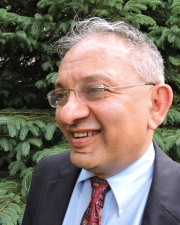
"I got to work with inspiring scholars doing cutting-edge work. I saw firsthand the process of writing, submitting, and publishing a journal article. I had so many experiences that shaped me as a scholar and that I continue to draw on in my research and academic writing."
Our Graduates
The Educational Linguistics Ph.D. program prepares candidates for teaching and research careers in colleges and universities worldwide, as well as careers in government, community, and private organizations.
Alumni Careers
- Associate Professor, Columbia Teachers College
- Assistant Professor, Indiana University
- Associate Professor, Malmö University
- Associate Professor, University of Iowa
- Associate Professor and Chair, Adelphi University
- Director of Educational Programming and Research, Center for Cultural, Art, Training and Education (CCATE)
- Senior International Baccalaureate World Schools Manager
- Assistant Professor of TESOL and Applied Linguistics in the English Department, Illinois State University
- Research and Evaluation Supervisor, William Penn School District
- Lecturer in Language Studies, Brown University
- Founder/CEO, Brilliant Bilingual
- Associate Professor of Language Education and Urban Social Justice Learning & Teaching, Rutgers University
- Associate Professor of Teaching and Learning, The Ohio State University
- Assistant Professor of Anthropology and Linguistics, University of Illinois, Urbana-Champagne
- Assistant Professor of International Students, College of Charleston
- Assistant Professor of Linguistics, University of Louisville
- Assistant Professor, Culturally & Linguistically Diverse Education, University of Colorado, Denver
- Marie Skłodowska-Curie Postdoctoral Fellow
Admissions & Financial Aid
Please visit our Admissions and Financial Aid pages for specific information on the application requirements , as well as information on tuition, fees, financial aid, scholarships, and fellowships.
Contact us if you have any questions about the program.
Graduate School of Education University of Pennsylvania 3700 Walnut Street Philadelphia, PA 19104 (215) 898-6415 [email protected] [email protected]
Erica Poinsett Program Assistant [email protected]
Please view information from our Admissions and Financial Aid Office for specific information on the cost of this program.
All Ph.D. students are guaranteed a full scholarship for their first four years of study, as well as a stipend and student health insurance. Penn GSE is committed to making your graduate education affordable, and we offer generous scholarships, fellowships, and assistantships.
Related News & Research
From philadelphia to seoul, global master’s program builds higher ed management.

Bowden: New budget formula could lead to "stunning losses" for some Pa. schools
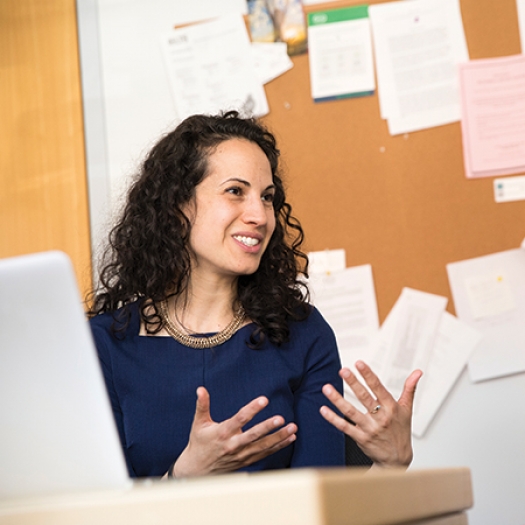
Sharon Wolf co-edits “Nature” npj collection on using social and behavioral science to address global achievement inequality

What the recent antitrust settlement means for the NCAA
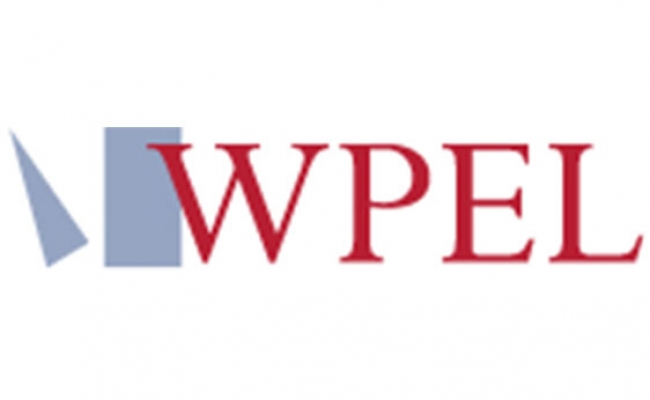
Working Papers in Educational Linguistics
Working Papers in Educational Linguistics is a student-managed journal focused on the many areas of research within educational linguistics.
You May Be Interested In
Related programs.
- Educational Linguistics Ed.D.
- Intercultural Communication M.S.Ed.
- Teaching English to Speakers of Other Languages (TESOL) M.S.Ed.
Related Topics

Linguistics and Applied Linguistics, PhD
- Program description
- At a glance
- Degree requirements
- Admission requirements
- Tuition information
- Application deadlines
- Program learning outcomes
- Career opportunities
- Contact information
Applied Linguistics, Discourse, Educational Linguistics, Language Policy, Language Study, Linguistics, PHONOLOGY, SEMANTICS, SYNTAX, Second Language Aquisition, Second Language Writing, english
Prepare for a career in academia or a variety of other professional paths. This program boasts internationally recognized faculty with expertise in a wide range of linguistics and applied linguistics subfields. Supervised internships, innovative mentoring programs, opportunities for research training and professional development, and a vibrant research community help you succeed in your academic and professional goals.
The PhD program in linguistics and applied linguistics focuses on the scientific study of human language and the application of that study to the human condition.
Students in this program select a research specialization in formal linguistics, applied linguistics or some combination within these fields of study.
The curriculum provides professional training in linguistics and applied linguistics with focused research in several linguistic subfields, including syntax, semantics, phonetics, phonology, pragmatics, discourse analysis, sociolinguistics, language contact and change, language planning, Indigenous American linguistics, language documentation and revitalization, second language acquisition, second language teaching and learning, teaching English to speakers of other languages, global Englishes and computer-assisted language learning.
- College/school: The College of Liberal Arts and Sciences
- Location: Tempe
84 credit hours, a written comprehensive exam, an oral comprehensive exam, a foreign language exam, a prospectus and a dissertation
Required Core (18 credit hours) APL 555 Disciplinary Discourses (3) APL 601 Introduction to Applied Linguistics (3) LIN 511 Phonetics and Phonology (3) LIN 514 Syntax (3) LIN 515 American English (3) or LIN 516 Pragmatics and Discourse Analysis (3) LIN 655 Advanced Disciplinary Discourses in Linguistics and Applied Linguistics (3)
Electives and Research (33 credit hours) LIN 501 Approaches to Research (3)
Specialization (21 credit hours)
Culminating Experience (12 credit hours) LIN 799 or APL 799 Dissertation (12)
Additional Curriculum Information When approved by the student's supervisory committee and the Graduate College, this program allows 30 credit hours from a previously awarded master's degree to be used for this degree. If students do not have a previously awarded master's degree, then 30 credit hours is made up of additional electives and research coursework which must include LIN 510, if they have not previously taken it or its equivalent.
Students must demonstrate evidence of competent knowledge of a natural language other than modern English, to be selected by the student and subject to the approval of the chair of the dissertation committee. The language requirement must be completed before the student is eligible to take the doctoral examinations. This requirement may be met by any of the following:
- earning a "B" or higher (3.00 on a 4.00 scale) in a 400- or 500-level course in an appropriate (approved) language
- demonstrating comparable proficiency by taking a language examination, administered by the School of International Letters and Cultures, in a language approved by the student's supervisory committee
- demonstrating native-speaker proficiency, as determined by the School of International Letters and Cultures, in a language approved by the student's supervisory committee
- earning a "B" or higher (3.00 on a 4.00 scale) in both ENG 530 Old English and ENG 531 Old English Literature or the equivalent of each
- holding a bachelor's degree in an approved foreign language
- having fulfilled a foreign language requirement toward a previously awarded master's degree that was completed within five years of the semester for which the student was admitted to the doctoral program
- two years (four semesters) of successfully completed college-level coursework (no more than six years prior to admission to the degree program) at least at the 100 and 200 levels with a "C" or better for languages which the School of International Letters and Cultures does not offer or does not offer above the 200 level
The foreign language requirement must be in a language approved by the student's doctoral supervisory committee.
Applicants must fulfill the requirements of both the Graduate College and The College of Liberal Arts and Sciences.
Applicants are eligible to apply to the program if they have earned a bachelor's or master's degree from a regionally accredited institution.
Applicants must have a minimum cumulative GPA of 3.00 (scale is 4.00 = "A") in the last 60 hours of their first bachelor's degree program, or a minimum cumulative GPA of 3.50 (scale is 4.00 = "A") in an applicable master's degree program.
All applicants must submit:
- graduate admission application and application fee
- official transcripts
- statement of purpose
- resume or curriculum vitae
- three letters of recommendation
- academic writing sample relevant to the field
- statement of teaching philosophy (teaching assistantship only)
- proof of English proficiency
Additional Application Information An applicant whose native language is not English (regardless of current residency) and has not graduated from an institution of higher learning in the United States must provide proof of English proficiency. Applications will not be processed without valid proof of English proficiency. More information about English proficiency requirements can be found the school website . Please note that official scores must be sent to ASU in order for the application to be processed.
The well-considered one- to two-page statement of purpose should explain the applicant's scholarly background and training, career goals, proposed research specialization, any secondary field of interest and why the applicant wishes to pursue a PhD in linguistics and applied linguistics at Arizona State University. Applicants applying for funding must also submit a statement of teaching philosophy.
| Session | Modality | Deadline | Type |
|---|---|---|---|
| Session A/C | In Person | 01/01 | Final |
Program learning outcomes identify what a student will learn or be able to do upon completion of their program. This program has the following program outcomes:
- Critical analysis expertise: Students will demonstrate the ability to explain, synthesize and critique existing scholarship in their research area.
- Independent research expertise: Students will be able to design and carry out an original research study in their discipline and subdisciplines.
- Scholarly writing expertise: Students will demonstrate the ability to produce written scholarly work at a level expected by the profession and consistent with the degree program.
Graduates with research expertise in linguistics and applied linguistics work in a variety of professional contexts, such as academia, government, business, health care, legal settings, publishing, the private sector and nongovernmental organizations.
Career examples include:
- computer-assisted language learning expert
- data analyst
- forensic linguist
- language policy or documentation expert
- language program director or coordinator
- language researcher
- linguistic consultant
- program and curriculum developer
- teacher trainer
- university professor
Department of English | RBHL 170 [email protected] 480-965-3194 Admission deadlines

Linguistics

Undergraduate Program
The concentration in Linguistics, the scientific study of language, emphasizes linguistic theory, historical linguistics, and the relationship between language and cognition, and cuts across the humanities, social sciences, cognitive sciences, physical sciences, and biological sciences. Students are also eligible to apply for an A.B./A.M. degree program.
The Department of Linguistics is home to one of the oldest and most distinguished linguistics programs in the United States. Today, students and faculty come from many different backgrounds and represent a wide range of interests, from purely theoretical to typological, historical, and experimental. What they share is a commitment to empirically grounded research and a respect for the rich traditions of the field.

PhD in Linguistics
Educating the next generation of scholars in theoretical linguistics..
One of the world’s top PhD programs in theoretical linguistics, UMass linguistics prepares a small number of students to become high-quality researchers and teachers.
The program normally lasts five years, and students may concentrate their work in any of the following areas: syntax, semantics, phonology, phonetics, psycholinguistics, language acquisition, morphology, and optimality theory. Additionally, students often work with other UMass programs offering courses related to the study of natural language, such as philosophy, computer science, communication disorders, psychology, foreign languages, and mathematics.
Our students conduct individual creative research early in their graduate careers, working very closely with faculty. They must successfully write and defend two general papers and a “breadth” paper before beginning dissertation work. Additionally, every student must acquire some teaching experience, either through faculty/student team teaching or by being responsible for teaching a section of one of our introductory courses.
Upon graduation, our students are well-prepared to become professors in theoretical linguistics at universities around the world.
Related offerings
Students interested in our PhD in Linguistics may also be interested in these other offerings.
- Bachelor of Arts in Linguistics
- Minor in Linguistics
- Certificate in American English Linguistics
- Certificate in Cognitive Science
- Certificate in Teaching English to Speakers of Other Languages
Featured faculty
Joe Pater is the department chair and a professor of linguistics.

Linguistics
Explore the many complex facets of human language at one of the world’s top linguistics programs.
- Department of Linguistics
Global footer
- ©2024 University of Massachusetts Amherst
- Site policies
- Non-discrimination notice
- Accessibility
- Terms of use

Founded in the mid-1930s, the Department of Linguistics at the University of Chicago is the oldest linguistics department in the United States.
We are theory-oriented with a deep empirical interest in languages. One of the outstanding characteristics of this department is our commitment to a wide range of approaches to the study of language. Interdisciplinary, interdepartmental study is encouraged, and students regularly work with faculty in several other departments.
The faculty are involved in synchronic and diachronic research on languages from around the world. These varied interests are reflected in the range of topics of the dissertations that have been written in the Department.
Graduate students are expected to become active researchers as soon as possible after their arrival here. Many students come with strong undergraduate training in linguistics, or with a Master's degree; others come with strong training in fields such as philosophy, mathematics, or a particular language or language group.
The Department of Linguistics' Statement on Diversity and Inclusion
The Department of Linguistics at the University of Chicago is committed to fostering a diverse and inclusive environment where we value difference, in all of its forms, including race, ethnicity, gender, age, religion, language, abilities, sexual orientation, gender identity, socioeconomic status, and national origin . The University’s Diversity and Inclusion website highlights efforts being made across all branches of the University to promote inclusion and diversity amongst members of the University and Hyde Park communities. In addition, Student Disability Services , Student Support Services, the Office of LGBTQ Student Life , and the Office of Multicultural Student Affairs all provide resources and assistance to students, faculty, and staff.
Recent News
Congratulations to chris kennedy....

Hearty congratulations to Diane!

Hearty congratulations to Anastasia Giannakidou!

Congratulations to Lenore!

- Clerc Center | PK-12 & Outreach
- KDES | PK-8th Grade School (D.C. Metro Area)
- MSSD | 9th-12th Grade School (Nationwide)
- Gallaudet University Regional Centers
- Parent Advocacy App
- K-12 ASL Content Standards
- National Resources
- Youth Programs
- Academic Bowl
- Battle Of The Books
- National Literary Competition
- Youth Debate Bowl
- Youth Esports Series
- Bison Sports Camp
- Discover College and Careers (DC²)
- Financial Wizards
- Immerse Into ASL
- Alumni Relations
- Alumni Association
- Homecoming Weekend
- Class Giving
- Get Tickets / BisonPass
- Sport Calendars
- Cross Country
- Swimming & Diving
- Track & Field
- Indoor Track & Field
- Cheerleading
- Winter Cheerleading
- Human Resources
- Plan a Visit
- Request Info

- Areas of Study
- Accessible Human-Centered Computing
- American Sign Language
- Art and Media Design
- Communication Studies
- Data Science
- Deaf Studies
- Early Intervention Studies Graduate Programs
- Educational Neuroscience
- Hearing, Speech, and Language Sciences
- Information Technology
- International Development
- Interpretation and Translation
- Linguistics
- Mathematics
- Philosophy and Religion
- Physical Education & Recreation
- Public Affairs
- Public Health
- Sexuality and Gender Studies
- Social Work
- Theatre and Dance
- World Languages and Cultures
- B.A. in American Sign Language
- B.A. in Biology
- B.A. in Communication Studies
- B.A. in Communication Studies for Online Degree Completion Program
- B.A. in Deaf Studies
- B.A. in Deaf Studies for Online Degree Completion Program
- B.A. in Education with a Specialization in Early Childhood Education
- B.A. in Education with a Specialization in Elementary Education
- B.A. in English
- B.A. in English for Online Degree Completion Program
- B.A. in Government
- B.A. in Government with a Specialization in Law
- B.A. in History
- B.A. in Interdisciplinary Spanish
- B.A. in International Studies
- B.A. in Mathematics
- B.A. in Philosophy
- B.A. in Psychology
- B.A. in Psychology for Online Degree Completion Program
- B.A. in Social Work (BSW)
- B.A. in Sociology with a concentration in Criminology
- B.A. in Theatre Arts: Production/Performance
- B.A. or B.S. in Education with a Specialization in Secondary Education: Science, English, Mathematics or Social Studies
- B.S. in Accounting
- B.S. in Accounting for Online Degree Completion Program
- B.S. in Biology
- B.S. in Business Administration
- B.S. in Business Administration for Online Degree Completion Program
- B.S. in Data Science
- B.S. in Information Technology
- B.S. in Mathematics
- B.S. in Physical Education and Recreation
- B.S. in Public Health
- B.S. in Risk Management and Insurance
- General Education
- General Education Requirements
- Honors Program
- Peace Corps Prep program
- Self-Directed Major
- Student Learning Outcomes
- Undergraduate Continuous Enrollment
- Undergraduate Degree Requirements
- M.A. in Counseling: Clinical Mental Health Counseling
- M.A. in Counseling: School Counseling
- M.A. in Deaf Education
- M.A. in Deaf Education Studies
- M.A. in Deaf Studies: Cultural Studies
- M.A. in Deaf Studies: Language and Human Rights
- M.A. in Early Childhood Education and Deaf Education
- M.A. in Elementary Education and Deaf Education
- M.A. in International Development
- M.A. in Interpretation: Combined Interpreting Practice and Research
- M.A. in Interpretation: Interpreting Research
- M.A. in Linguistics
- M.A. in Secondary Education and Deaf Education
- M.A. in Sign Language Education
- M.S. in Accessible Human-Centered Computing
- M.S. in Speech-Language Pathology
- Master of Public Administration
- Master of Social Work (MSW)
- Non-Clinical M.S. in Hearing, Speech and Language Sciences
- Au.D. in Audiology
- Ed.D. in Transformational Leadership and Administration in Deaf Education
- Ph.D. in Clinical Psychology
- Ph.D. in Critical Studies in the Education of Deaf Learners
- Ph.D. in Hearing, Speech, and Language Sciences
Ph.D. in Linguistics
- Ph.D. in Translation and Interpreting Studies
- Psy.D. in School Psychology
- Individual Courses and Training
- Fall Online Courses
- Summer Online Courses
- National Caregiver Certification Course
- Certificates
- Educating Deaf Students with Disabilities (online, post-bachelor’s)
- American Sign Language and English Bilingual Early Childhood Deaf Education: Birth to 5 (online, post-bachelor’s)
- Early Intervention Studies
- Online Degree Programs
- ODCP Minor in Communication Studies
- ODCP Minor in Deaf Studies
- ODCP Minor in Psychology
- ODCP Minor in Writing
- University Capstone Honors for Online Degree Completion Program
Quick Links
- PK-12 & Outreach
- NSO Schedule
Requirements
Opportunities
Program Outcomes
- Accreditation
Job Outlook
Gallaudet’s Ph.D. program in Linguistics, with a focus on ASL and other signed languages, gives students the opportunity to specialize in a range of theoretical and applied areas related to signed languages, including phonology, syntax, morphology, cognitive linguistics, sociolinguistics, first and second language acquisition, applied and engaged linguistics, multimodality, and language documentation.
Successful applications include a letter of interest that identifies a prospective Ph.D. advisor. Applicants are encouraged to contact the prospective advisor and the Linguistics Graduate Coordinator ahead of time to discuss the admissions process. Applicants also submit a CV, transcripts, and a sample of their academic work; the Graduate Admissions webpage lists detailed information about the application process and requirements.
Required Coursework Credits for Graduation
Students who have already completed the 41 credits required for the Gallaudet LIN M.A. are required to complete a minimum of 36 additional credits (24 required credits and 12 elective credits) for the LIN Ph.D. For these students, the doctoral curriculum consists of a total of 77 credits of coursework plus dissertation research.
Students who enter the LIN Ph.D. program without a Gallaudet LIN M.A. are required to complete a minimum of 62 credits (26 required M.A. credits, 24 required Ph.D. credits, and 12 elective credits) plus dissertation research. These students must also successfully complete the Qualifying Exam and Viva Exam. Although these students are not typically awarded an incidental M.A. on the way to the Ph.D., this option is available upon completion of the entire M.A. in Linguistics, which includes an additional 15 elective credits.
All Ph.D. students must complete the following courses (24 credits): Sociolinguistics in Deaf Communities (LIN 741), Phonology III (LIN 801), Generative Linguistics III (LIN 802), Cognitive Linguistics III (LIN 827), Guided Research Project (LIN 880, taken twice), Concept Paper (LIN 883), and Dissertation Proposal Development (LIN 890).
All Ph.D. students must also complete a minimum of 12 elective credits, to be chosen by the student in consultation with the student’s advisor. Electives outside of Linguistics are subject to approval by the Linguistics faculty, and these courses should focus on aspects of linguistic theory, application, or research related to the student’s professional or academic goals. Some electives may also be taken through the Consortium of Colleges and Universities of the Washington Metropolitan Area.
Guided Research Project (LIN 880), GRP Reader and GRP Presentation Milestones
For the Guided Research Project (GRP), students design and conduct an independent research project under the guidance of their dissertation advisor. The GRP typically is related to the student’s dissertation topic, but is not required to be. LIN 880 is taken twice, and the final GRP paper is evaluated by both the advisor and a GRP reader who is a Linguistics faculty member external to the project. The GRP paper must be considered satisfactory by both evaluators in order for the student to continue in the Ph.D. program.
Students are required to give a presentation on their GRP, similar to what would be given at a professional conference. This is a formal presentation, 20 minutes in length with 10 minutes for discussion and/or Q&A. Faculty evaluate the presentation in areas of content, presentation, and language use, and students receive feedback from the faculty. Successful completion of the GRP presentation is required to continue in the Ph.D. program.
Concept Paper (LIN 883), Field Exam and Concept Paper Presentation Milestones
The Concept Paper serves as a transition from students’ preparatory coursework to their dissertation proposal. This paper includes a statement of the research question(s) and a review of relevant literature, and focuses primarily on (a) defining the key concepts relevant to the student’s anticipated research plans and (b) making the underlying theoretical assumptions explicit. The Concept Paper must be completed in the first 10 weeks of LIN 883 in order to provide time for the Field Exam and Concept Paper Presentation to occur. LIN 883 may be taken twice, at the discretion of the Linguistics faculty.
The content of the Field Exam is determined by the student’s Concept Paper. Three examiners (the LIN advisor for the Concept Paper, a second LIN faculty member with expertise in some area relevant to the student’s Concept Paper, and a third LIN faculty member who does not work in the area of the student’s Concept Paper) conduct in-depth questioning in areas pertinent to the Concept Paper topic. Student responses are evaluated by all three examiners together as a Pass with Distinction, Pass, Unsatisfactory or Fail. Students who receive an Unsatisfactory score on the Field Exam are required to retake the exam; students who Fail the Field Exam are dismissed from the program. Students who retake the Field Exam and receive either a score of Unsatisfactory or Fail are dismissed from the program.
After successful completion of the Field Exam, students give a presentation on their Concept Paper. This is a formal presentation, similar to what would be given at a professional conference, 20 minutes in length with 10 minutes for discussion and/or Q&A. Faculty evaluate the presentation in areas of content, presentation, and language use, and students receive feedback from the faculty. Successful completion of the Concept Paper Presentation is required to continue in the Ph.D. program.
Dissertation Proposal Development (LIN 890) and Proposal Defense Milestone
Each student seeking a Ph.D. is required to complete a research-based dissertation on a topic acceptable to their dissertation committee. LIN 890 is the course in which students develop their dissertation proposal. LIN 890 may be taken twice, at the discretion of the Linguistics faculty. The proposal defines a project of appropriate scope, extends the literature review from the Concept Paper, and outlines an appropriate research design and methodology. Students meet regularly with their dissertation advisor for guidance and discussion, but are expected to pursue the bulk of the work independently. Once the full committee deems the proposal defendable, a defense date is set.
All Ph.D. coursework must be completed or be on track to be completed by the semester the proposal defense occurs. Successful defense of one’s dissertation proposal is the candidacy examination for the LIN Ph.D. program.
Dissertation Research (LIN 900) and Dissertation Defense Milestone
Once students have successfully defended their dissertation proposal, they advance to Dissertation Research. LIN 900 may be taken multiple times, provided students earn a passing grade each semester.
The dissertation is a research project designed to provide new understanding of a topic, and includes a thorough and thoughtful review of the relevant literature, description of methodology, analysis, and discussion and conclusion elucidating the significance of the findings. The dissertation process is discussed in detail in the Gallaudet University Dissertation and Thesis Handbook.
The maximum time allowed for completion of the dissertation is seven years from the start of the LIN M.A. degree or six years from entrance into the Ph.D. program for those without a LIN M.A. degree. Any extension beyond this deadline will require the approval of the doctoral committee, the Graduate Program Coordinator, the School Director, and the Associate Dean of Graduate Education.
Courses & Requirements
Summary of Requirements
24 required credits, LIN 880 is taken twice
An examination of the theories and principles of sociolinguistics with specific reference to sign languages and Deaf communities around the world. Topics include multilingualism, bilingualism, and language contact, variation, discourse analysis, language policy and planning and language attitudes.
All first year Linguistics MA courses or by permission of instructor.
This course is an advanced seminar focusing on phonological theory, building on foundational material presented in Phonology I and Phonology II. Topics will vary depending upon current developments in phonological theory, focusing on both spoken and signed languages.
This course is an advanced seminar focusing on generative approaches to syntactic theory, building on foundational material presented in Generative Syntax I and Generative Syntax II. Topics will vary depending upon current developments in syntactic theory, focusing on both spoken and signed languages.
This seminar is the third course in the Cognitive Linguistic sequence of courses in the graduate linguistics program (the first two being LIN 721 and LIN 732). Possible major topics include cognitive grammar, cognitive semantics, conceptual blending, constructional grammar, embodiment, depiction, mental spaces, metaphor, metonymy, and the usage-based approach to language.
This course is required to be taken twice, typically beginning in the fall semester of students' first year in the Ph.D. program and continuing into the following spring semester. Students will design and conduct a research project under the supervision of a faculty member. Course requirements include a final paper by the end of the second semester with the following components, as applicable: development of an appropriate research plan, completion of the IRB human subjects review, and collection and analysis of data. LIN 880 may be repeated a third semester at the discretion of the instructor if requirements cannot be successfully completed in the usual two semesters.
Acceptance to LIN Ph.D. program and successful completion of the LIN Qualifying Exam.
This course serves as a transition from students' preparatory coursework to their dissertation proposal. Under supervision of a faculty member, students will complete a Concept Paper that identifies their research question(s) and defines key concepts that underlie those research questions. The Concept Paper also specifies the theoretical framework(s) to be adopted for research and discusses previous literature assumed as background information. Upon approval of a student's completed Concept Paper by the instructor, the student will then give a Concept Paper Presentation to the full faculty and take the field exam, both of which are developed on the basis of the student's completed Concept Paper. LIN 883 may be repeated one time.
Successful completion of LIN 880 Guided Research Project and LIN Faculty approval of the GRP presentation.
In this course, students will develop their dissertation proposal, producing a research plan for answering the research questions posed in their Concept Paper. Emphasis will be on defining a project of appropriate scope for a dissertation, extending the literature review and selecting an appropriate research design and methodology. Students will meet regularly with their dissertation advisor for guidance and discussion, but are expected to pursue the bulk of the work independently. LIN 890 may be repeated one time.
LIN 883, Field Exam, Concept Paper Presentation, and approval of the GRP paper as having achieved publication quality, as evaluated by an outside reader from the LIN faculty.
26 additional required credits, only for students who did not complete the Gallaudet M.A. in Linguistics
An introduction to the principles of linguistic study, with a concentrated focus on phonology and phonological theory as applied to English and ASL. Topics will include: phonetics, phonemics, phonological processes, syllables and syllabification, distinctive features, phonological rules, and an overview of current phonological theory.
This course provides an introduction to generative linguistics and principles of syntactic argumentation within the generative tradition. Topics include Parts of Speech, Phrase Structure rules, X-bar rules, the role of the Lexicon, and various types of syntactic movement related to verbal morphology, questions and passive constructions. The course focuses initially on English and other spoken languages, but also includes application to ASL towards the end of the course.
This course will introduce students to the profession of linguistics, its history and subfields, as well as the research specializations of department faculty. Students will also receive general training in a variety of skills relevant to graduate studies in linguistics, such as technical writing, using library resources to locate literature, using computer and editing techniques needed for carrying out sign linguistics projects, and applying for research grants and IRB approval for student research projects.
This is the first of a three-course sequence focusing on a cognitive linguistics approach to ASL. Examination of semiotic diversity in ASL from the perspective of Cognitive Grammar, with an emphasis on analysis of data. The primary focus of the course is on depiction, establishing a typology of depiction that includes many imagistic phenomena in ASL and other spoken and signed languages, such as enactments, manual depictive forms, and ideophones. Notions in Cognitive Grammar benefiting depiction analysis, such as constructions and construal, are also introduced.
This course builds on foundational material presented in Phonology I. Students will investigate the phonological structure of signs in American Sign Language. Part one (I) presents a comparison of notation systems for signs and provides extensive training in sign notation. Part two (II) deals with phonological contrast. Part three (III) is concerned with the phonotactic properties of lexical signs. Part four (IV) deals with phonological processes and historical change.
LIN 701 or permission of instructor.
This course is a continuation of LIN 721, with discussion of the tenets of cognitive linguistics, particularly the view that lexicon and grammar are a continuum of form-meaning pairings with varying degrees of abstraction and complexity. This discussion provides the theoretical background with which to investigate grammatical structures in ASL, English, and other languages, including metaphor, grammatical classes (e.g., noun and verb categories), and complex expressions (e.g., morphology, compounding, grammatical relations, and grammatical constructions).
LIN 721 or permission of instructor
This course builds on foundational material presented in Generative Linguistics I and extends them to the study of ASL and other sign languages. Lectures include continued opportunity for hands-on practice in deriving various syntactic structures, and also develop students' abilities to independently read and understand articles in generative linguistics.
LIN 702 or permission of instructor
12 elective credits (selected sample of offerings)
Elective offerings vary each semester. Electives outside of LIN are subject to approval by the Linguistics faculty.
Students are introduced to a descriptive framework with which to identify and analyze iconicity and depiction in ASL and other signed languages and spoken languages as well. The course focuses on depiction typology, examining the structure of role-shifting, constructed action and dialogue, classifier constructions/depicting verbs, aspectual constructions, abstract/metaphorical depictions, and other imagistic uses of space, including different types of gesture.
LIN 101, graduate student status, or permission of the instructor.
This course examines general issues in first language acquisition, focusing on the period from birth to five years. It includes critical review of literature on phonological, lexical, morphological and syntactic development for both signed and spoken first languages, from both nativist and usage-based theoretical perspectives.
All first year Linguistics MA courses plus LIN 741, or permission of instructor.
This course will review current theory and research in second language acquisition (SLA) from linguistic and psychological perspectives, focusing on the influences of various theoretical models. Students will be introduced to the principal areas of SLA research and the major methodologies available for their study. Course material will focus on acquisition of a spoken second language, but also discuss recent studies and analyze data related to second language acquisition of a sign language.
The focus of this course is a comparison among six dominant approaches to the analysis of discourse: pragmatics, speech act theory, conversational analysis, interactional sociolinguistics, ethnography of communication, and variation analysis, with close examination of different kinds of sign language discourse.
All first year Linguistics MA courses, or permission of instructor
Year I - Fall
Complete Qualifying Exam during the Year 1 Fall Semester.
Year I - Spring
Year II - Fall
Complete Viva Exam during the Year 2 Fall Semester.
Year II - Spring
Present Guided Research Project during the Year 2 Spring Semester.
Year III - Fall
Complete the Field Exam and Present Concept Paper during Year 3 Fall Semester.
Year III - Spring
Year IV - Fall
Defend Dissertation Proposal during Year 4 Fall Semester.
Year IV - Spring (and onward)
Defend Dissertation.
This course is for ABD students conducting any aspect of their dissertation research and writing.
Successful completion of LIN 890 and dissertation proposal defense, LIN 741, LIN 801, LIN 802, and LIN 827, and all four electives required for the doctoral program.
1. Specialized knowledge:
a. Demonstration of in-depth familiarity with current literature relevant to their chosen topic of research.
2. Critical evaluation:
a. Ability to critically compare and evaluate claims from the linguistics literature and argue for or against them in a coherent manner.
3. Formulation of research questions:
a. Ability to independently formulate clear and tractable research questions related to their individual projects, and develop a systematic and culturally responsible plan for answering them, including identification of data needed to further the investigation.
4. Dissemination and communication:
a. Ability to communicate information about sign language linguistics competently and respectfully to the field, the Deaf communities, and the greater public.
5. Ethical conduct as researchers
a. Demonstrating academic integrity and responsible conduct in their research practices with transparency and respect to the communities involved.
Get the Details
Fill out our inquiry form for an Admissions Counselor to contact you.
Apply Today
Create an account to start Your Applications.
Contact the Admissions Office?
Already Started an Application? Log in to Submit your completed Application or Check your application status here.
At a Glance
- Quick Facts
- University Leadership
- History & Traditions
- Consumer Information
- Our 10-Year Vision: The Gallaudet Promise
- Annual Report of Achievements (ARA)
- The Signing Ecosystem
- Not Your Average University
Our Community
- Library & Archives
- Technology Support
- Interpreting Requests
- Ombuds Support
- Health and Wellness Programs
- Profile & Web Edits
Visit Gallaudet
- Explore Our Campus
- Virtual Tour
- Maps & Directions
- Shuttle Bus Schedule
- Kellogg Conference Hotel
- Welcome Center
- National Deaf Life Museum
- Apple Guide Maps
Engage Today
- Work at Gallaudet / Clerc Center
- Social Media Channels
- University Wide Events
- Sponsorship Requests
- Data Requests
- Media Inquiries
- Gallaudet Today Magazine
- Giving at Gallaudet
- Financial Aid
- Registrar’s Office
- Residence Life & Housing
- Safety & Security
- Undergraduate Admissions
- Graduate Admissions
- University Communications
- Clerc Center

Gallaudet University, chartered in 1864, is a private university for deaf and hard of hearing students.
Copyright © 2024 Gallaudet University. All rights reserved.
- Accessibility
- Cookie Consent Notice
- Privacy Policy
- File a Report
800 Florida Avenue NE, Washington, D.C. 20002
- Faculty and Staff
University of Hawai‘i ® at Mānoa 2024-2025 General Catalog
College of arts, languages & letters: linguistics.
- College of Arts, Languages & Letters
- The School of Cinematic Arts
- American Studies
- Art and Art History
- Asian Studies
- East Asian Languages and Literatures
- Indo-Pacific Languages and Literatures
- Languages and Literatures of Europe and the Americas
- Linguistics
- Pacific Islands Studies
- Religions & Ancient Civilizations
- Second Language Studies
- Theatre and Dance
- Resource and Research Centers
- School of Pacific and Asian Studies
College of Arts, Languages & Letters Moore 569 1890 East-West Road Honolulu, HI 96822 Tel: (808) 956-9002 Fax: (808) 956-9165 Email: [email protected] Web: ling.hawaii.edu
* Graduate Faculty
*A. L. Berez-Kroeker, PhD (Chair)—language documentation; language archiving; Athabascan languages; Papuan languages; geography and languages; discourse; intonation; functional approaches to grammar *A. Cheng, PhD–Articulatory and acoustic phonetics; sociolinguistics; language variation and change; bilingualism and heritage bilingualism; Korean; (North American) English dialectology; race and language; child language development; language and social justice. *K. Deen, PhD—language acquisition (emphasis on experimental approaches); experimental morphosyntax; acquisition of understudied languages, particularly Bantu languages and languages of South East Asia; bilingualism; second language acquisition *K. K. Drager, PhD—sociolinguistics; phonetics; experimental linguistics; language variation and change; language and identity *S.M. Easterday, PhD—phonology; typology; language change; linguistic complexity; endangered and under-resourced languages *S. Fukuda, PhD—theoretical and experimental syntax; lexical semantics; syntax-lexical semantics interface phenomena and their acquisition *G. M. Holton, PhD—language documentation; historical linguistics; Austronesian languages; Na-Dene languages; Papuan languages, linguistic typology; archiving; language revitalization *B. J. McDonnell, PhD—language documentation; Austronesian linguistics; syntax; phonology; corpus linguistics *W. D. O’Grady, PhD—syntactic theory and description; experimental syntax; language acquisition; Korean and Jejueo; heritage languages; language revitalization *A. J. Schafer, PhD—psycholinguistics; experimental linguistics; sentence comprehension and production (including Korean, Japanese, Austronesian languages, underdocumented languages, and in language learners/bilinguals); sentence prosody; information structure; psycholinguistic approaches to language documentation and conservation
Emeritus Faculty In Residence
L. R. Campbell, PhD—language documentation, historical linguistics, endangered languages and language revitalization, typology, field methods, American Indian languages M. L. Forman, PhD—general linguistics, ethnographic linguistics, Philippine studies A. M. Peters, PhD—language acquisition: prosody, emergence of grammatical morphemes, crosslinguistic issues
Cooperating Graduate Faculty
P. Arboleda, PhD—Philippine folklore, gender and literature, Philippine ethnolinguistic groups, translation and digital animation H. M. Cook, PhD—Japanese linguistics; sociolinguistics; discourse analysis and pragmatics T. Grüter, PhD—morphosyntax and semantics; developmental psycholinguistics; language processing (using eye-tracking methods); bilingualism C. Higgins, PhD—macro- and micro-sociolinguistics, qualitative research methods, conversational analysis, code-switching Y. Hoonchamlong, PhD—Thai linguistics (syntax, discourse, semantics), Tai/Thai dialectology, language learning and teaching, internet technology in language research and language instruction, translation G. Kasper, PhD—languages and social interaction; socially grounded approaches to second language acquisition C. Sak-Humphry, PhD—Khmer language, linguistics and literature B. Schwartz, PhD—linguistics theory and second-language acquisition and analysis; Universal Grammar; child second-language acquisition N. Silva, PhD—Hawaiian politics, indigenous politics K. Wong, PhD—Hawaiian language and culture, immersion education
Affiliate Graduate Faculty
P. J. Donegan, PhD—phonological theory; Mon Khmer languages; Munda; natural phonology; child phonology Y. Ostuka, DPhil—syntax; minimalist program; Tongan and Polynesian languages; Austronesian languages; endangered and underdocumented languages of Polynesia; language planning in Polynesia H. M. Sohn, PhD (Emeritus)—Korean linguistics; grammaticalization J. C. Woodward Jr., PhD—sign languages
Degrees Offered: BA in interdisciplinary studies (linguistics), MA in linguistics, PhD in linguistics, minor in linguistics

The Academic Program
Linguistics (LING), also called linguistic science or the science of language, is the study of how language works– how it is acquired, how it is used, how it is represented in the brain, how it changes over time, and so on. Major subfields are documentary linguistics, phonetics, phonology, morphology, syntax, semantics, discourse analysis, pragmatics, historical linguistics, sociolinguistics, psycholinguistics (including developmental psycholinguistics), neurolinguistics, mathematical and computational linguistics, and ethnographic linguistics
Linguistics is relevant to many endeavors, including cognitive science, language planning, language teaching, speech synthesis and recognition, treatment of language disorders, repair of communication breakdowns, and information technology. Our program presents unique opportunities for the study of Austronesian (Malayo-Polynesian) and Asian languages. It also has special strengths in language acquisition, psycholinguistics, sociolinguistics, and language documentation and conservation.
Our program is recognized as being among the top fifteen in the U.S.
All faculty in the department participate in the advising of students majoring in linguistics. Undergraduates majoring in linguistics under the Interdisciplinary Studies program are advised initially by the undergraduate advisor. Graduate majors are advised by the chair of the graduate field of study or by one of the language documentation faculty. Students are later assigned to specific faculty members for advising according to their special interests.
Undergraduate Study
Bachelor’s degree.
Students may obtain a BA degree with a linguistics major at UH Mānoa through the Interdisciplinary Studies program. See manoa.hawaii.edu/undergrad/is/ . In this program, with the guidance of a faculty advisor, students create for themselves a major that may combine the study of linguistics with related disciplines, such as anthropology, second language studies, or psychology, or with the study of one or more foreign languages. Students majoring in linguistics in this way may include some or all of the MA core of courses in their BA program, and are thus able to do more advanced work, should they continue with an MA.
Students are required to complete 15 credits of upper division LING courses with a grade of C (not C-) or better. Students will start with LING 320 (General Linguistics). The remaining 12 credits can come from any 300- or 400-level LING course. Students are encouraged to take one of 100-level LING courses before starting the Linguistics Minor program. For more information, contact [email protected].
Graduate Study
The faculty represents a variety of theoretical viewpoints. The various faculty members are especially well qualified to direct research on languages of the Pacific and parts of Asia. Fields of special competence include descriptive and comparative linguistics, general linguistic theory, language contact and variation, ethnolinguistics, language development, experimental phonetics, psycholinguistics, sociolinguistics, and cognitive linguistics.
Students admitted to graduate programs in linguistics normally have a background in at least one foreign language. Some background in mathematics or one of the sciences may also be useful. Students entering without a course equivalent to LING 320 are required to take this course to make up for this deficiency in their preparation for graduate work.
Both the MA and the PhD degrees are offered.
The MA program provides a basic introduction to the subject matter and skills of the discipline. The PhD program provides full professional training for careers in research and teaching. Employment opportunities for graduates of both programs today often require additional knowledge of one or more related disciplines. Students are therefore encouraged to broaden their training in linguistics by including work in other disciplines. Such programs, and those that include many of the specializations listed above, will involve the inclusion of faculty members from other fields of study on students’ program committees. Students should make known their interests to the graduate chair as early as possible so that appropriate advisors can be chosen to direct students to courses, and any key prerequisite courses, that will help them explore their interests further. It is also possible for students to include concentrations in linguistics in their programs for the MA degree in Asian studies or Pacific Islands studies.
The guidelines listed below are offered to guide students in their preparation for the various examinations, although individual study must be done in areas not covered by course offerings. Courses bearing the 700-level numbers are seminars, and various sections of these seminars are typically offered in a given semester, depending on the interests of the resident faculty and students. Each semester there are normally a number of seminars dealing with geographical areas, particular language families, the structures of individual languages, and particular theoretical problems. A major portion of the work done beyond the MA level is in seminars and in directed research.
Master’s Degree
Requirements.
The department offers MA Plan A and Plan B programs. In addition to the university-wide residence requirements of a minimum of two semesters of full-time work, all three programs require that students demonstrate competence in one language other than their native language.
Plan A requires a thesis (9 credit hours) and a minimum of 21 credit hours of course work. A final oral examination covering the thesis and related areas is also required.
Plan B requires a minimum of 30 credit hours plus a final project near the end of course work. The required 30 hours of course work must be taken for a letter grade (not CR/NCR or Audit), of which 18 hours must be at the 600-level or above, including 3 hours of a 700-level seminar. Students may choose between three “streams”: Linguistic Analysis, Experimental Linguistics, and Language Documentation and Conservation. For all streams there is a Core List from which different numbers of courses are to be selected. For details, see our MA manual, via ling.hawaii.edu/wp-content/uploads/MAmanual.pdf .
Doctoral Degree
All students in the PhD program are required to complete a minimum of 33 credit hours of course and seminar work at UH Mānoa (exclusive of LING 800) beyond those counted towards the MA degree. Courses in phonology (LING 621), grammar (LING 622), and two Methods courses are required of all PhD students.
All PhD candidates must demonstrate competence in one language other than their native language.
PhD students must present two professionally written papers, pass a comprehensive examination, and pass a final oral examination in defense of the dissertation.
For details, see our PhD manual, via ling.hawaii.edu/wp-content/uploads/PhDmanual.pdf .
2024-2025 Catalog
Doctoral degrees.
The University of Idaho awards the degree of Doctor of Philosophy in recognition of high achievement in scholarly and research activity. The degree of Doctor of Education is granted for high scholarly attainment and in recognition of the completion of academic preparation for professional practice. See the "Ph.D. and Ed.D. Procedures" tab for more details. The Doctor of Athletic Training is offered through the College of Education and the Department of Movement Sciences (see the "DAT Procedures" tab for more details).
The major professor and program offering a particular doctoral program indicate the general philosophy of the degree program, the objectives of courses and seminars, the research specialties available, and requirements unique to the department. Admission to the doctoral program is granted only to those who have a recognized potential for completing the degree.
Requirements for Doctoral Degrees
Credit requirements.
For the Ph.D. and Ed.D., a minimum of 78 credits beyond the bachelor's degree is required.; At least 52 credits must be at the 500 level or above and at least 33 of the 78 credits must be in courses other than 600 (Doctoral Research and Dissertation). A maximum of 45 research credits in 600 (Doctoral Research and Dissertation) including 6 credits of 599 (Non-thesis Research) or 500 (Master's Research and Thesis) may be in the 45 research credits used toward the degree. For the D.A.T., a minimum of 66 credits is required and follows a prescribed set of courses set by the program.
Courses numbered below 300 may not be used to fulfill the requirements for a doctoral degree; courses numbered 300-399 may be used only in supporting areas and are not to be used to make up deficiencies. Individual programs may require additional course work. Applicants having a doctoral degree may obtain a second doctoral degree subject to the approval of the Graduate Council. The Graduate Council will establish the requirements for the second degree.
Credit Limitations for Transfer, Correspondence Study, and Non-degree
For the Ph.D. and Ed.D. degrees, a student must complete at least 39 of the 78 required credits at the University of Idaho (U of I) while matriculated in the College of Graduate Studies. Credits can be transferred to U of I with the consent of the student's major professor, the committee (if required by the program), the program's administrator, and the dean of the College of Graduate Studies. Credits can be transferred only if the institution from which the credits are being transferred has a graduate program in the course's discipline. All credits used toward graduate degrees must be from regionally accredited American institutions or from non-US institutions recognized by the appropriate authorities in their respective countries. Transfer credits are subject to all other College of Graduate Studies rules and regulations. Correspondence study courses may be applied to the degree only with the prior written approval of the College of Graduate Studies. Courses used toward an undergraduate degree, professional development courses, and courses on a professional development transcript are not available to be used toward a doctoral degree.
Time Limits
Of the credits submitted to satisfy the requirements for a Ph.D. or Ed.D. degree, a maximum of 30 may be more than eight years old when the degree is conferred, provided the student's committee and program administrator determine that the student has kept current in the subjects concerned. Graduation must occur no later than five years after the date on which the candidate passed their preliminary or general examination. These time limitations can be extended only on recommendation of the committee and approval by the Graduate Council.
Awarding Doctoral Degrees to Members of the Faculty
Regulations are outlined in Section 4920 of the Faculty-Staff Handbook.
Particular Requirements for the Ed.D. Degree
A period of professional practice is required for the Doctor of Education degree; the period involved is determined by the student's supervisory committee. While the Ed.D. is a College of Education degree, you should consult with the departments in the College of Education to learn of specific emphasis requirements.
Procedures for Doctor of Philosophy and Doctor of Education Degrees
Appointment of major professor and committee.
Refer to " Appointment of Major Professor and Committee for All Degree Seeking Graduate Students " in the preceding General Graduate Regulations section. In addition, a doctoral supervisory committee consists of at least four people: the major professor as chair and at least one additional UI faculty member from the program, the balance of the committee may be made up of faculty members from a minor or supporting area, and faculty members from a discipline outside the major. If the committee has a co-chair, the minimum number of committee members is five.
Qualifying Examination
The qualifying examination is a program option and serves to assess the background of the student in both the major and supporting fields and to provide partially the basis for preparation of the student's study program. A particular program may or may not require a master's degree as a prerequisite for the qualifying evaluation. As soon as the program's qualifications are met, a supervisory committee is appointed.
Preparation of Study Plan
Refer to " Preparation and Submission of Study Plan " in the preceding General Graduate Regulations section.
Preliminary Examination for Ph.D. Degree
The preliminary examination should be scheduled only after the student has completed the majority of the courses on their study plan. The student is required to be registered during the semester the preliminary examination is taken. The student's committee certifies to the College of Graduate Studies the results of the preliminary examination and if passed, the student is advanced to candidacy. Graduation must occur no later than five years after the date on which the candidate passed their examination. If the preliminary examination is failed, it may be repeated only once; the repeat examination must be taken within a period of not less than three months or more than one year following the first attempt. If a student fails the preliminary examination a second time, or the program does not allow the student to repeat the examination after the first failure or the student does not retake the examination within one year, the student is automatically moved to unclassified enrollment status and is no longer in the degree program.
General Examination for Ed.D . Degree
When the student approaches the end of their course work, has completed the professional experience requirement, and has outlined the dissertation subject in detail, the supervisory committee approves the holding of the general examination. The student is required to be registered during the semester the general examination is taken. The examination is both written and oral and is intended to assess progress toward degree objectives. The student's committee certifies to the College of Graduate Studies the results of the general examination and if passed, the student is advanced to candidacy. Graduation must occur no later than five years after the date on which the candidate passed their examination. If the general examination is failed, it may be repeated only once; the repeat examination must be taken within a period of not less than three months or more than one year following the first attempt. If a student fails the general examination a second time, or the program does not allow the student to repeat the examination after the first failure or the student does not retake the examination within one year, the student is automatically moved to unclassified status and is no longer in the degree program.
See the General Graduate Regulations section regarding application for advanced degree, registration requirements, final defense and dissertation requirements.
Procedures for Doctor of Athletic Training
The culminating clinical project.
Students enrolled in the Doctor of Athletic Training (D.A.T.) will engage in research projects during the curricular phase of the program. These project(s) will lead to at least two publication ready manuscripts, and all students must meet professional authorship requirements (regardless of order). See the Department of Movement Sciences and Doctor of Athletic Training webpages for more information.
The Team (Committee)
All D.A.T. project team committees will have at least four committee members: two members of the athletic training faculty (all with graduate faculty status), the student's attending clinician (who is the student's on-site mentor during the student's residency), and an expert in the student's chosen area of clinical research. The athletic training faculty members will always chair the CCP, provide research guidance, and serve as the experts in the development of advanced practice in Athletic Training. A situation may arise in which one or both of the members of the committee that are outside of the AT program faculty may have a degree less than that of which the student is seeking; however, the intent of the third and fourth D.A.T. committee membership is to provide outside validation of the student's progress toward advanced practice and clinical utility of action research studies.
Culminating Clinical Project Hours
These dissertation hours may be used in instances when the CCP has not been successfully completed and the curricular phase of program has been completed.
Print Options
Send Page to Printer
Print this page.
Download Page (PDF)
The PDF will include all information unique to this page.
100 Best universities for Linguistics in Russia
Updated: February 29, 2024
- Art & Design
- Computer Science
- Engineering
- Environmental Science
- Liberal Arts & Social Sciences
- Mathematics
Below is a list of best universities in Russia ranked based on their research performance in Linguistics. A graph of 404K citations received by 109K academic papers made by 166 universities in Russia was used to calculate publications' ratings, which then were adjusted for release dates and added to final scores.
We don't distinguish between undergraduate and graduate programs nor do we adjust for current majors offered. You can find information about granted degrees on a university page but always double-check with the university website.
1. Moscow State University
For Linguistics

2. National Research University Higher School of Economics

3. St. Petersburg State University

4. Kazan Federal University

5. RUDN University

6. Tomsk State University

7. Novosibirsk State University

8. Southern Federal University

9. Ural Federal University

10. Moscow Aviation Institute

11. Moscow Institute of Physics and Technology

12. National Research Nuclear University MEPI

13. Peter the Great St.Petersburg Polytechnic University

14. Moscow State Pedagogical University

15. ITMO University

16. Saratov State University

17. Moscow State Institute of International Relations

18. Samara National Research University

19. Bauman Moscow State Technical University

20. Tomsk Polytechnic University

21. Russian Presidential Academy of National Economy and Public Administration

22. Finance Academy under the Government of the Russian Federation

23. Moscow Medical Academy

24. Voronezh State University

25. South Ural State University

26. Lobachevsky State University of Nizhni Novgorod

27. Novosibirsk State Technical University

28. N.R.U. Moscow Power Engineering Institute

29. Russian State University for the Humanities

30. Bashkir State University

31. Moscow State Linguistic University

32. Siberian Federal University

33. Far Eastern Federal University

34. Leningrad State University

35. Yaroslavl State University
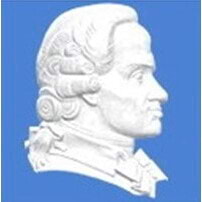
36. Saint Petersburg State Electrotechnical University

37. Plekhanov Russian University of Economics

38. Belgorod State University

39. Chelyabinsk State University
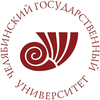
40. Novgorod State University
41. samara state technical university.

42. Omsk State University

43. North-Eastern Federal University

44. New Economic School

45. Russian National Research Medical University

46. Irkutsk State University

47. National University of Science and Technology "MISIS"

48. Kemerovo State University

49. St. Petersburg State University of Economics

50. Perm State Technical University
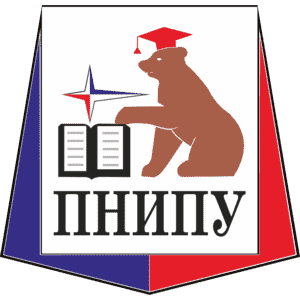
51. Kuban State University

52. Tomsk State University of Control Systems and Radioelectronics
53. tambov state university.

54. Moscow State Technological University "Stankin"

55. Moscow State University of Railway Engineering

56. Immanuel Kant Baltic Federal University

57. Pavlov First Saint Petersburg State Medical University
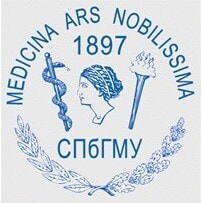
58. South-Western State University

59. Tver State University
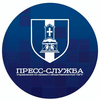
60. State University of Management

61. Siberian State Aerospace University

62. Tomsk State Pedagogical University
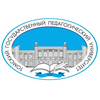
63. Petrozavodsk State University

64. Ufa State Aviation Technical University

65. Penza State University
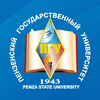
66. Tula State University
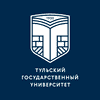
67. Ogarev Mordovia State University

68. Baikal State University

69. Nizhny Novgorod State Technical University

70. Volgograd State University

71. Kazan State Technological University

72. Kazan National Research Technical University named after A.N. Tupolev - KAI

73. Ufa State Petroleum Technological University

74. Ulyanovsk State University
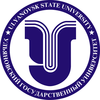
75. University of Tyumen

76. Ulyanovsk State Technical University

77. Perm State University

78. St. Petersburg State University of Aerospace Instrumentation

79. Pushkin State Russian Language Institute
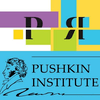
80. Omsk State Technical University
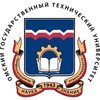
81. Northern Arctic Federal University

82. Moscow Polytech

83. North Caucasus Federal University
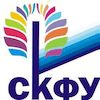
84. Altai State University
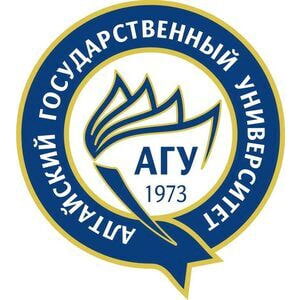
85. Ivanovo State University
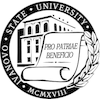
86. Saint-Petersburg Mining University

87. Chechen State University
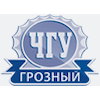
88. Tambov State Technical University
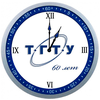
89. Sevastopol State University

90. South-Russian State University of Economics and Service
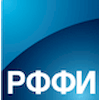
91. Gorno-Altaisk State University
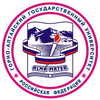
92. Pacific National University

93. Bonch-Bruevich St. Petersburg State University of Telecommunications

94. Mendeleev University of Chemical Technology of Russia

95. Magnitogorsk State Technical University
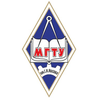
96. Saratov State Technical University

97. Kalashnikov Izhevsk State Technical University
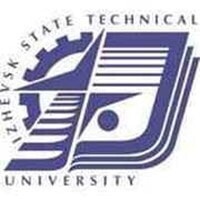
98. Udmurt State University
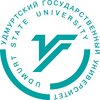
99. Belgorod State Technological University
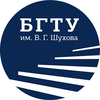
100. St. Petersburg State University of Architecture and Civil Engineering

The best cities to study Linguistics in Russia based on the number of universities and their ranks are Moscow , Saint Petersburg , Kazan , and Tomsk .
Liberal Arts & Social Sciences subfields in Russia
Recommended
Olympic dreams stir bad memories for hopeful denied bid thanks to moscow boycott in 1980: ‘dead wrong’.
- View Author Archive
- Follow on X
- Get author RSS feed
Thanks for contacting us. We've received your submission.

Former President Jimmy Carter turned Bob Giordano’s Olympic dreams into nightmares.
Carter’s decision to boycott the Moscow Summer Games in response to the Soviet Union’s invasion of Afghanistan in 1979 still irks the ex-elite Team USA weightlifter, who was set to go to his first Olympics but stewed at home instead.
“The biggest disappointment of my life,” the 6-foot-1, 225-pound Giordano, 73, told the Post a week before the 2024 Paris Olympics kick off on Friday.
The Cedar Grove, NJ resident insisted he has no “ill will” towards Carter, 99 — who is currently in hospice in Georgia — but would still tell him his decision was “dead wrong” if he had the chance.

“It was a political show. It was the wrong thing to do,” said Giordano. “I think he still strongly believes he was right.”
The country was locked in a cold war with the Soviet Union when Carter vowed the United States would lead a boycott of the Moscow Games if Soviet forces did not withdraw from Afghanistan, which they invaded Dec. 27, 1979.

The Feb. 20 deadline arrived and passed without Russian leader Leonid Brezhnev blinking.
Two days later, the 1980 US hockey team in Lake Placid stunned the Soviets in the famed “The Miracle On Ice” game.
But a month later, Carter announced the summer boycott.
“Ours will not go,” the president said. “I say that not with any equivocation. The decision has been made.”
“I trained 10 years for that moment,” said Giordano, who was the spokesman for the athletes against the boycott. He said a number of other USA Olympians never forgave Carter.

“I tried to tell him that the best thing we could do was go beat them [the Russians] at their own game on their soil,” he reasoned.
Giordano also endured “nasty letters’ and “death threats” for having the courage of his convictions, including one from a man who dubbed himself the “Montana vigilante” who used a racial slur and threatened to kill him.

Giordano, took his own advice to fellow Olympians and “let it go,” going on to graduate Seton Hall law school in 1987. He had a successful private law practice and then served as an administrative law judge, retiring in 2017.
Still, he hasn’t watched much of the Olympics since the boycott, and said he focuses on life with his wife of 43 “blissful years,” Sue, and his three children and six grandchildren.

“The boycott had no bearing on the downfall of the Soviet Union. Their 10-year occupation led to the fall. They overextended themselves,” Giordano insisted. “The only thing that came out of the boycott is 502 American athletes didn’t go.”

Advertisement

IMAGES
VIDEO
COMMENTS
The Department of Linguistics offers four concentrations leading to the Doctor of Philosophy (Ph.D.) degree in Linguistics (see list below). No matter the concentration, our faculty work closely with students, guiding their research and supporting their passions. Applicants to the Ph.D. program are encouraged to identify prospective research advisors, at least one of whom should […]
The Ph.D. program emphasizes rigorous theoretical work that has at its base a firm empirical foundation in language data. Students are provided with a broad-based background in linguistics, teaching experience in the classroom and other forums, and opportunities for original and high-quality research.
The Ph.D. program in Linguistics at Penn embraces a wide range of theoretical specializations and methodologies. What unites them is a commitment to careful and explicit formal analysis of the human capacity for learning and using language.
Students enrolled in the PhD program may get an MA degree when they pass the general exam and file a request for an MA degree with the graduate school. Students who have taken all the required courses for the PhD CompLing track may analogously file a request for an MS degree with the Graduate School, under either model A or B below.
This is one of the oldest and most distinguished linguistics programs in the United States, and one of the last remaining linguistics departments that continues to focus on both the theoretical and historical components of linguistics. ... Additional information on the graduate program is available from the Department of Linguistics, and ...
The PhD in Linguistics at BU aims to produce scholars who are versatile enough to be experts in both of these aspects of linguistic inquiry, yet skilled enough to do cutting-edge research in a particular subfield of the discipline. ... The deadline for application to enter the program in Fall 2023 is January 6, 2023. Information about the ...
The doctoral program in Linguistics and Applied Linguistics focuses on the study of human language and the application of that study to the human condition. Students in this program will choose a research specialization which can be formal linguistics, applied linguistics, or some combination of these areas. ...
Graduate students who have completed two years of residence, who have fulfilled all the course requirements and language requirements for the Ph.D., and who have successfully defended one Generals paper, are eligible to petition for a Master's (A.M.) degree. Note that there is no master's program in Linguistics.
Our graduate programs provide a unique environment where linguistic theory, multiple methodologies, and computational research not only coexist, but interact in a highly synergistic fashion. ... preparing them for a professional career or doctoral study in linguistics or related disciplines. Coterminal M.A. Program.
Catalog Year: 2024-2025. Banner Code: LA-PHD-LING. The PhD in Linguistics trains students in the science of language. Students become specialists in the core areas of linguistics-- phonetics, phonology, morphology, syntax, and semantics --and learn to integrate this core with the study of second language acquisition and/or computational linguistics.
The graduate program in Linguistics at Berkeley combines mentoring from faculty members in the department, coursework, research training, and professional development opportunities. Faculty expertise in the department spans an unusually diverse range of endeavors. The graduate program accordingly includes a broad range of advanced seminars ...
Our PhD program takes a distinctively integrative and interdisciplinary approach in investigating the systems of knowledge that comprise our linguistic competence. Students are exposed to different methodological approaches, while receiving firm grounding in the traditional domains of linguistics. Our faculty supports our graduate students in their pursuit of academic and non-academic positions.
If language is humanity's most useful tool, then applied linguistics, as the study of language, puts that tool to work. The focus of applied linguistics is on trying to resolve language-based issues that people encounter in the real world (Grabe 2002).
A pioneering doctoral program with an enduring legacy of research in applied linguistics, language learning, and teaching. The Educational Linguistics Ph.D. program focuses on language learning and teaching as well as the role of language in education.
The PhD program in linguistics and applied linguistics focuses on the scientific study of human language and the application of that study to the human condition. Students in this program select a research specialization in formal linguistics, applied linguistics or some combination within these fields of study.
The Ph.D. Program. The University of Florida offers the Ph.D. in Linguistics. Research is a significant component of the Ph.D. program and all Ph.D. candidates are expected to develop and carry out an original research project under the supervision of a Ph.D. supervisory committee.
The Department of Linguistics is home to one of the oldest and most distinguished linguistics programs in the United States. Today, students and faculty come from many different backgrounds and represent a wide range of interests, from purely theoretical to typological, historical, and experimental.
As one of the top four graduate programs in theoretical linguistics, the close-knit PhD in linguistics program prepares you to conduct individual creative research as early as possible in your graduate career, working very closely with faculty. You'll concentrate your study in the area of syntax, semantics, phonology, phonetics ...
One of the world's top PhD programs in theoretical linguistics, UMass linguistics prepares a small number of students to become high-quality researchers and teachers. The program normally lasts five years, and students may concentrate their work in any of the following areas: syntax, semantics, phonology, phonetics, psycholinguistics ...
The Doctor of Philosophy (PhD) program in linguistics is individually tailored to the needs and professional goals of the student. The programs combines a foundation in functional/usage-based linguistics theory with a strong preparation in empirical research methods, both in the laboratory as well as in field settings.
The Department of Linguistics at the University of Chicago is committed to fostering a diverse and inclusive environment where we value difference, in all of its forms, including race, ethnicity, gender, age, religion, language, abilities, sexual orientation, gender identity, socioeconomic status, and national origin.The University's Diversity and Inclusion website highlights efforts being ...
Gallaudet's Ph.D. program in Linguistics, with a focus on ASL and other signed languages, gives students the opportunity to specialize in a range of ... This seminar is the third course in the Cognitive Linguistic sequence of courses in the graduate linguistics program (the first two being LIN 721 and LIN 732). Possible major topics include ...
Degrees Offered: BA in interdisciplinary studies (linguistics), MA in linguistics, PhD in linguistics, minor in linguistics The Academic Program Linguistics (LING), also called linguistic science or the science of language, is the study of how language works- how it is acquired, how it is used, how it is represented in the brain, how it ...
Admission to the doctoral program is granted only to those who have a recognized potential for completing the degree. Requirements for Doctoral Degrees Credit Requirements. For the Ph.D. and Ed.D., a minimum of 78 credits beyond the bachelor's degree is required.; At least 52 credits must be at the 500 level or above and at least 33 of the 78 ...
Below is the list of 100 best universities for Linguistics in Russia ranked based on their research performance: a graph of 404K citations received by 109K academic papers made by these universities was used to calculate ratings and create the top. ... We don't distinguish between undergraduate and graduate programs nor do we adjust for current ...
Giordano went on to graduate Seton Hall law school in 1987. He had a successful private law practice and then served as an administrative law judge, retiring in 2017.